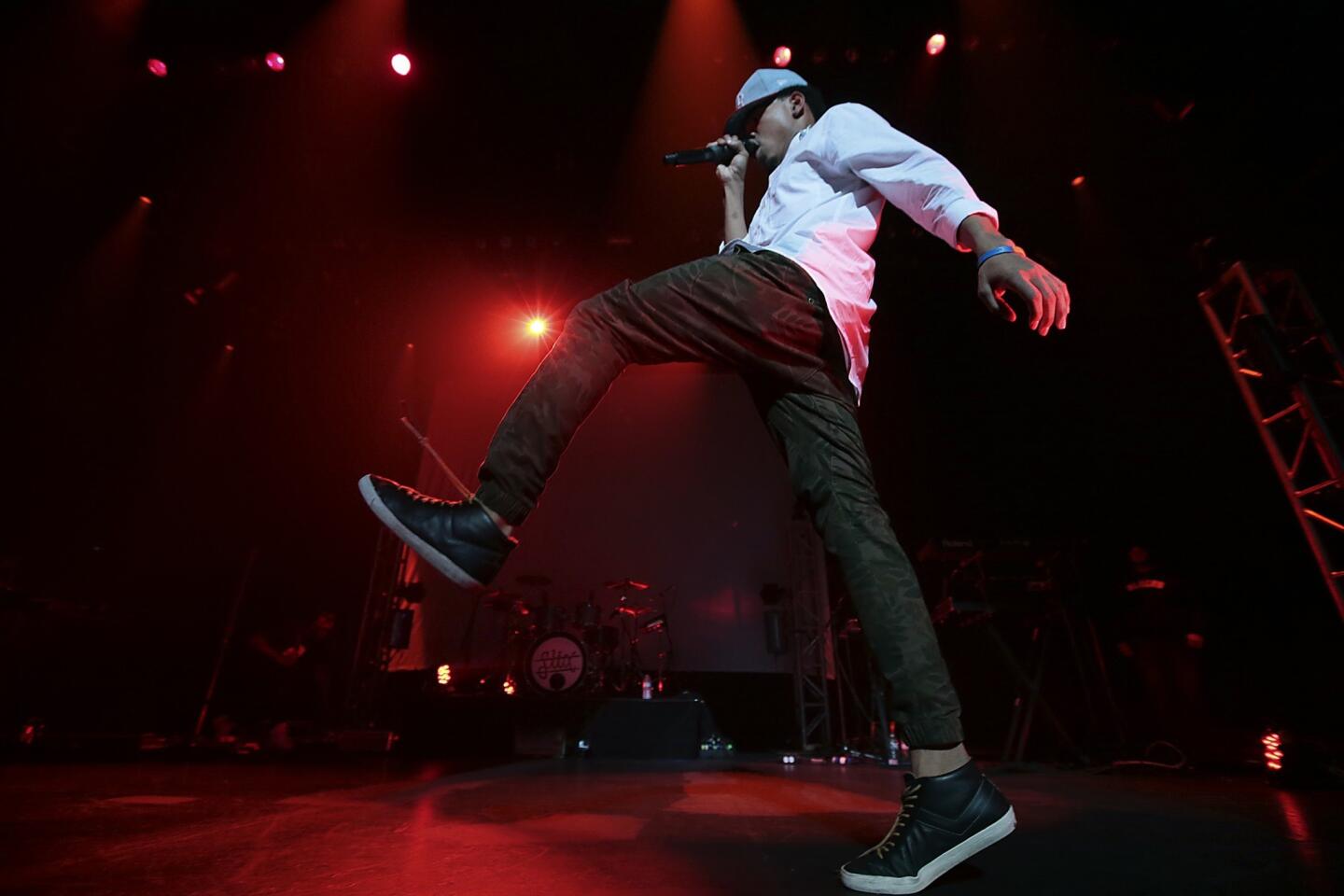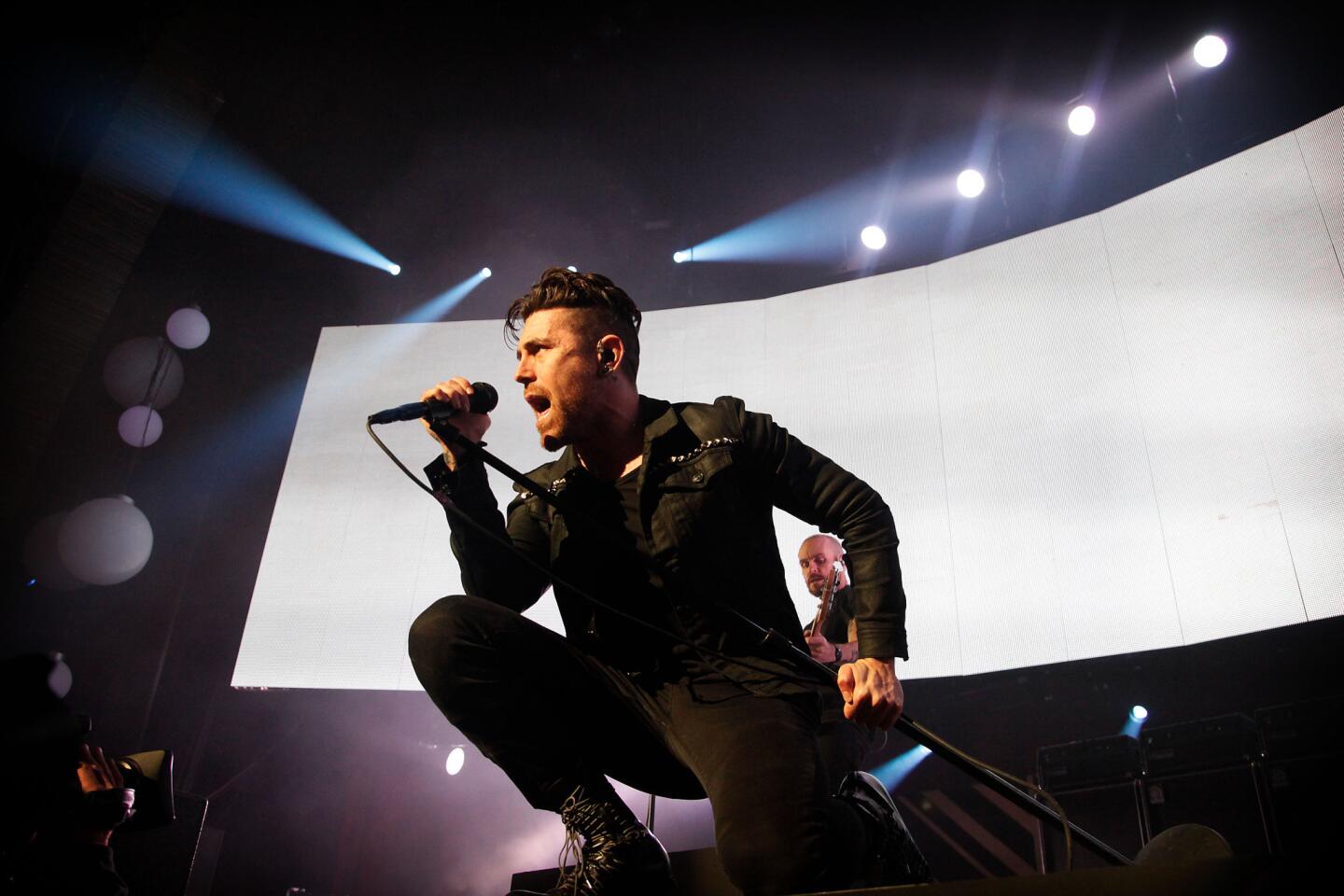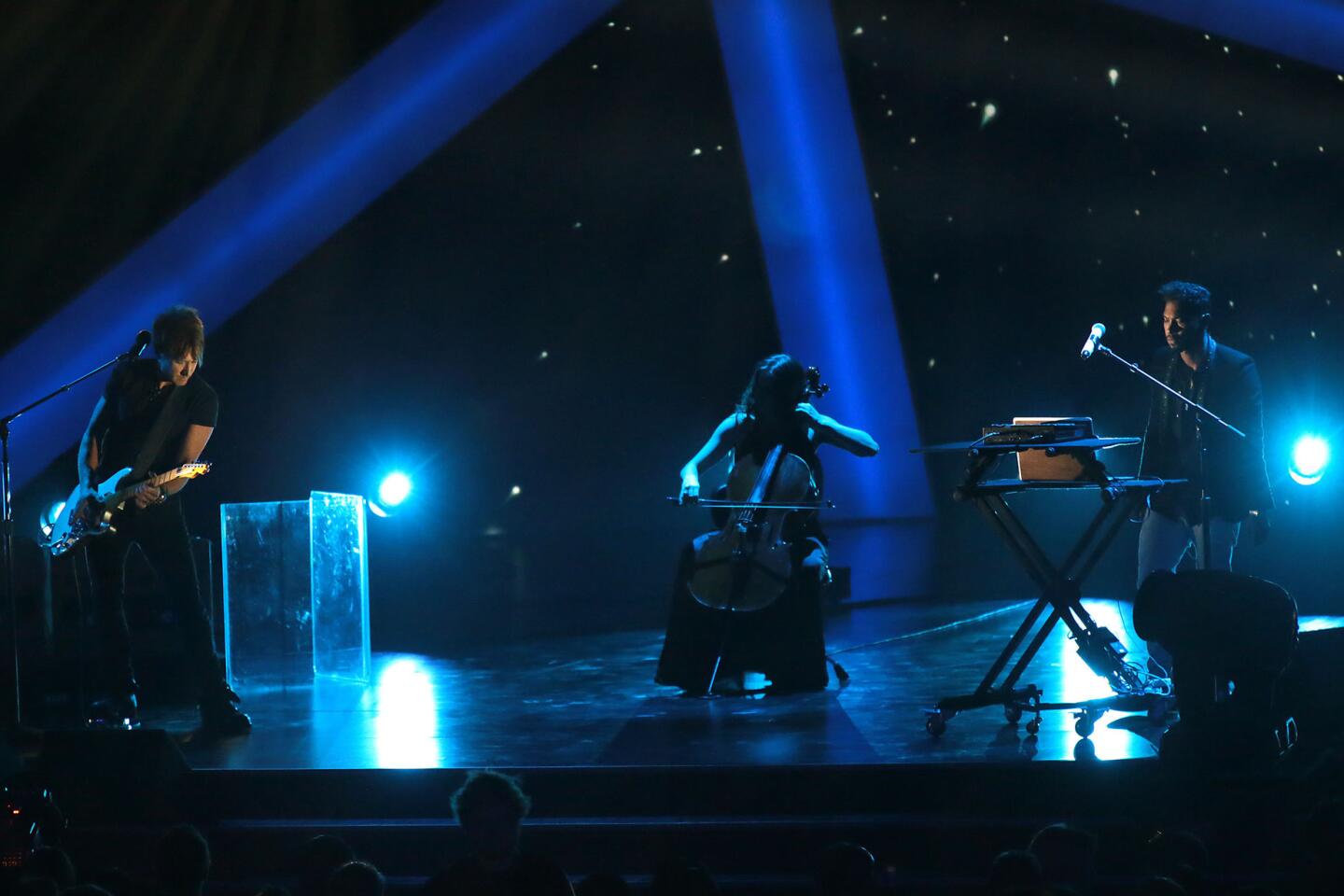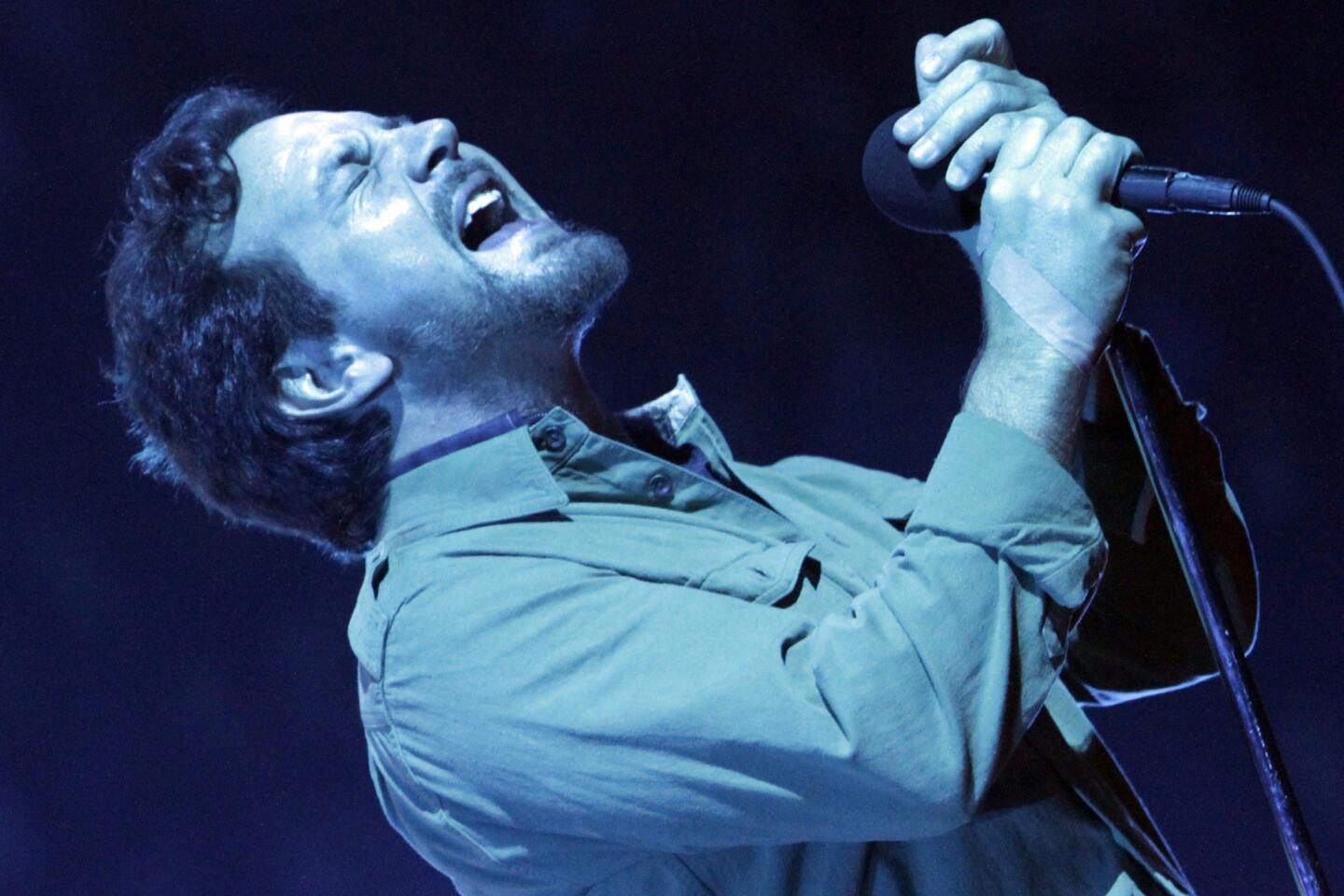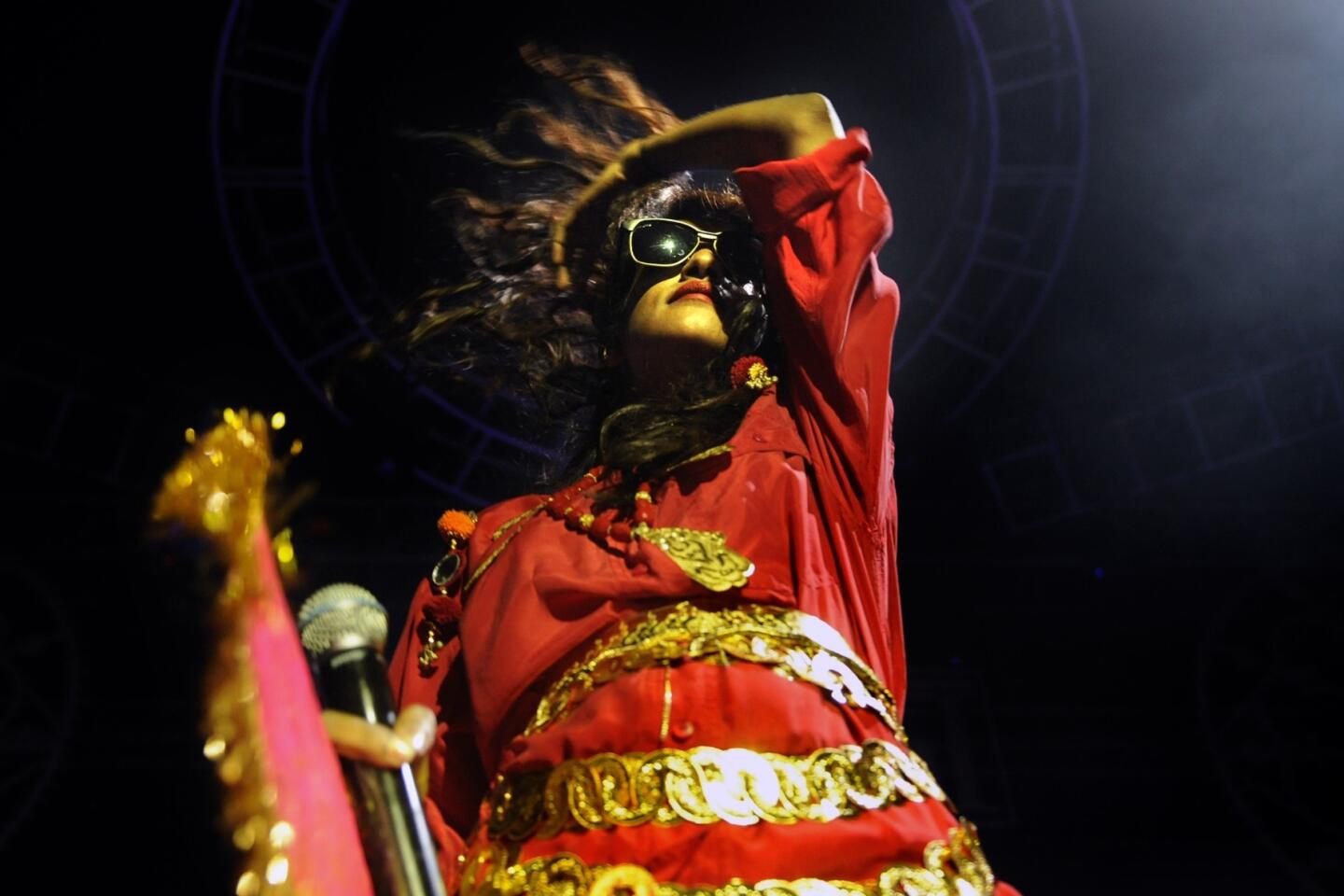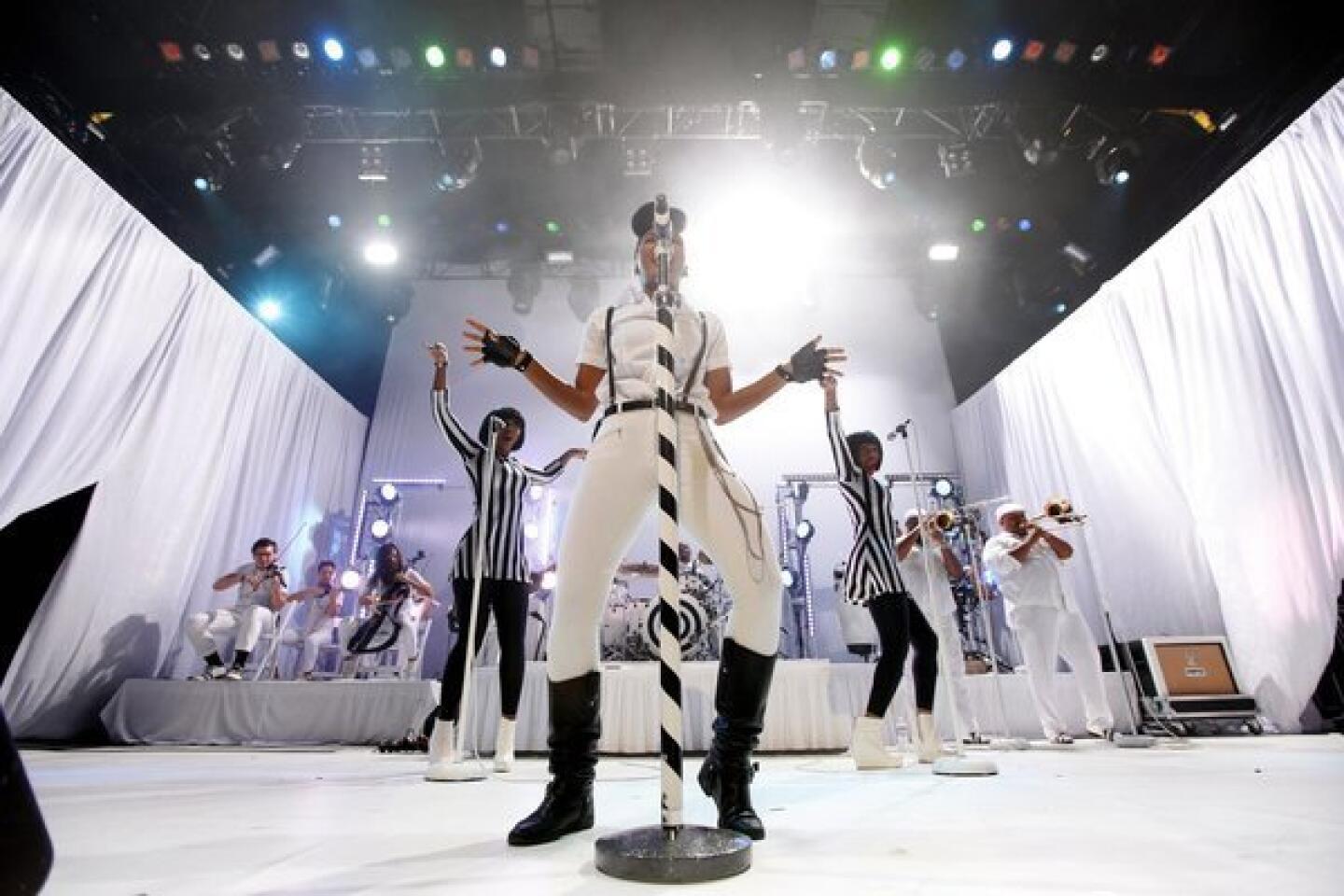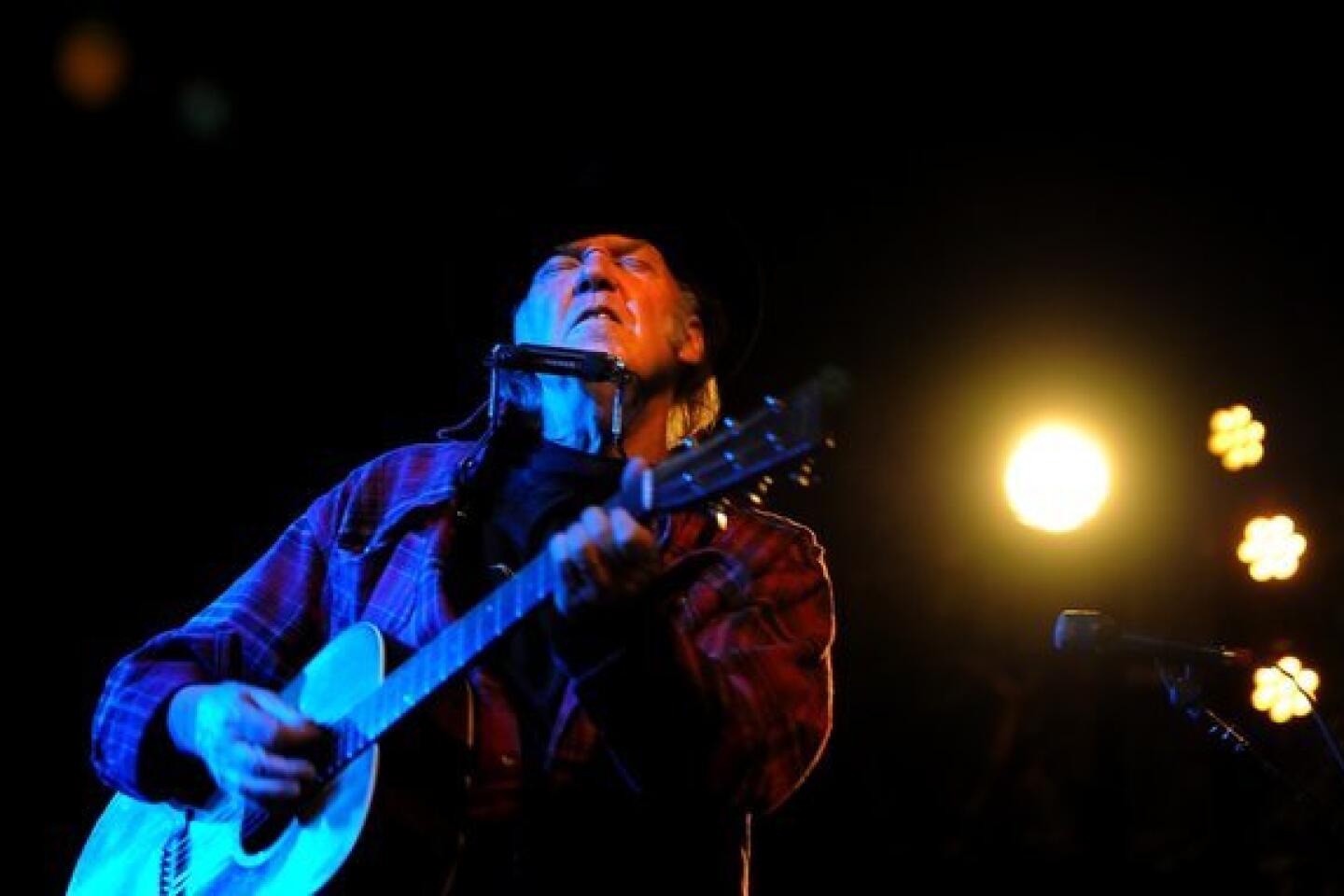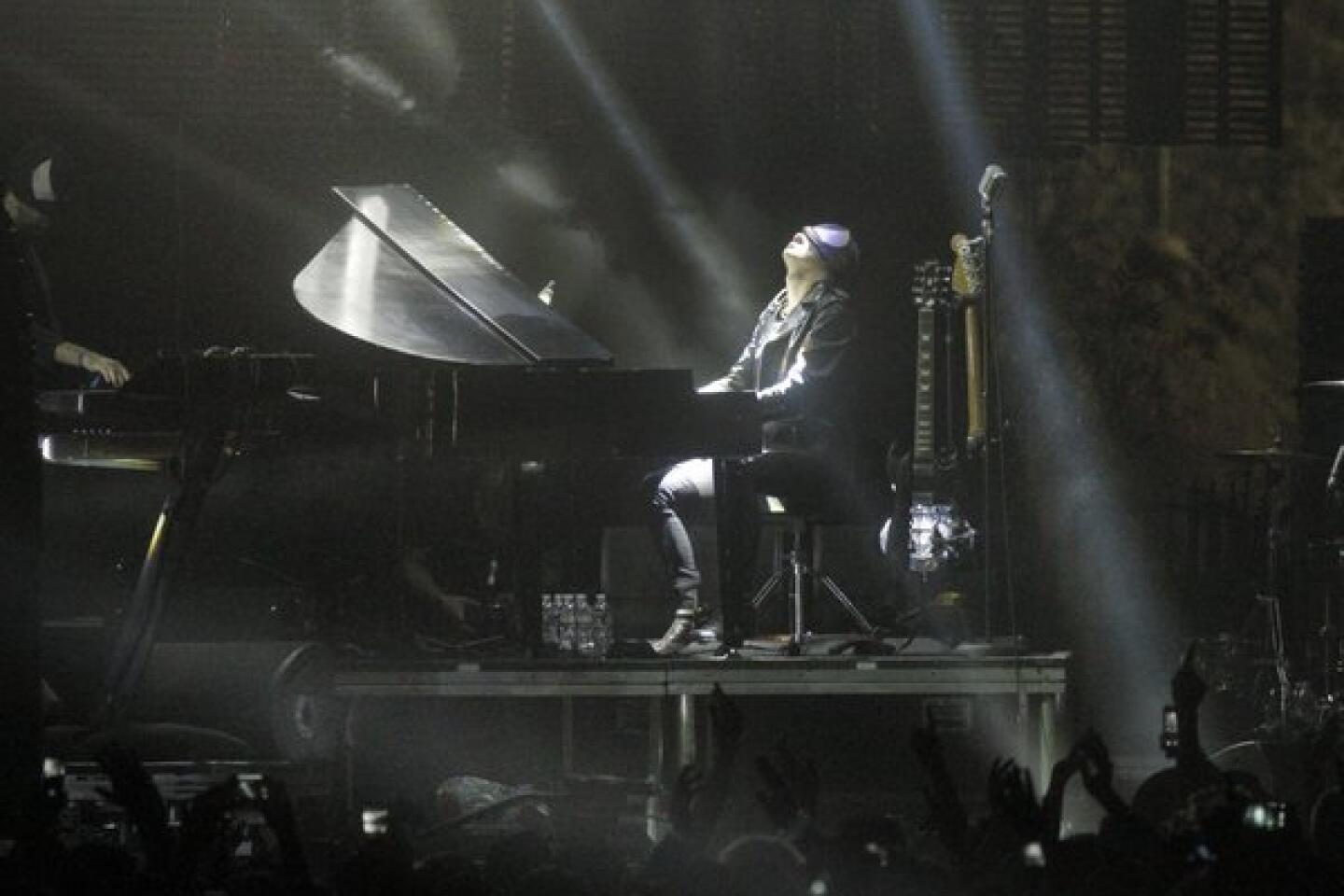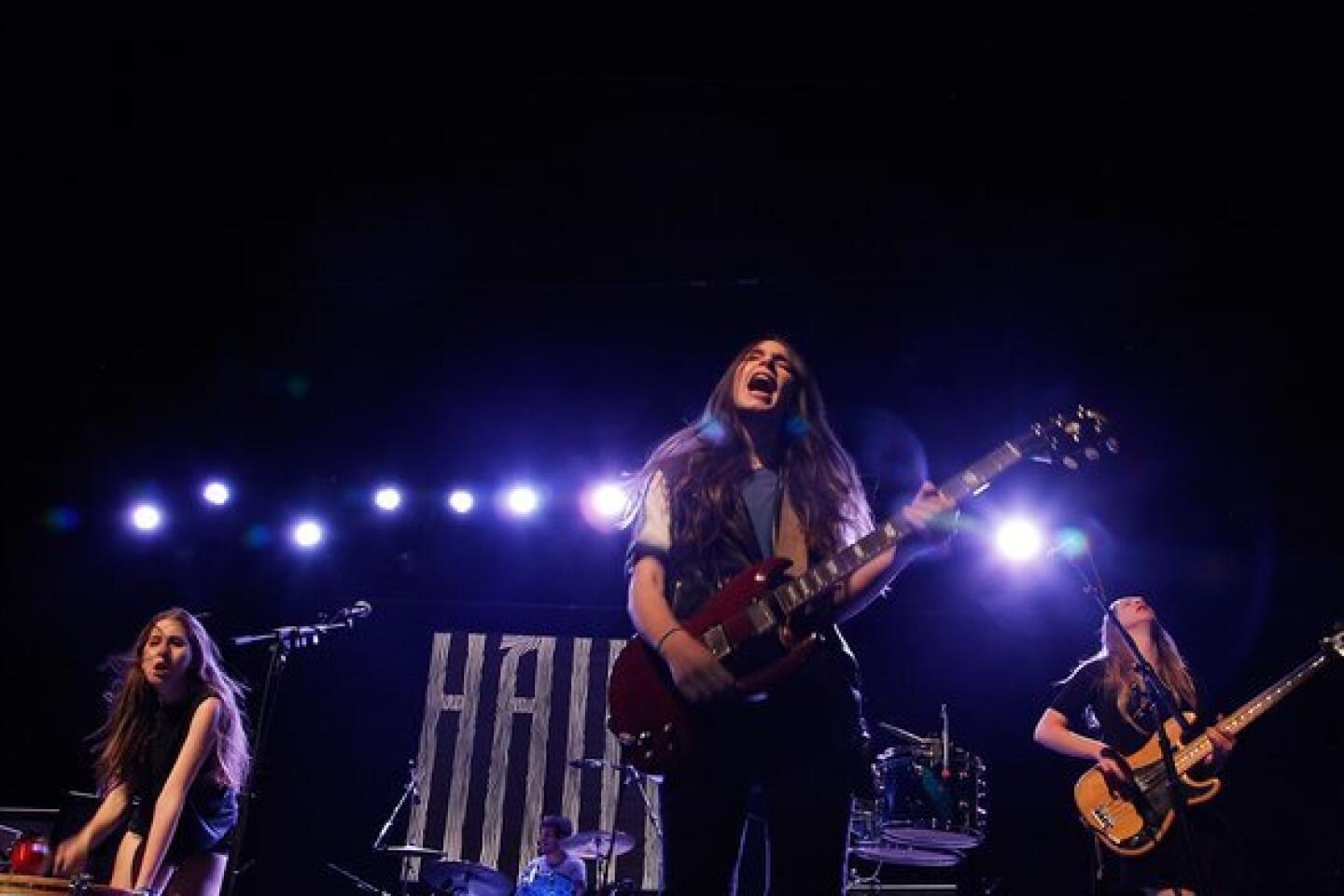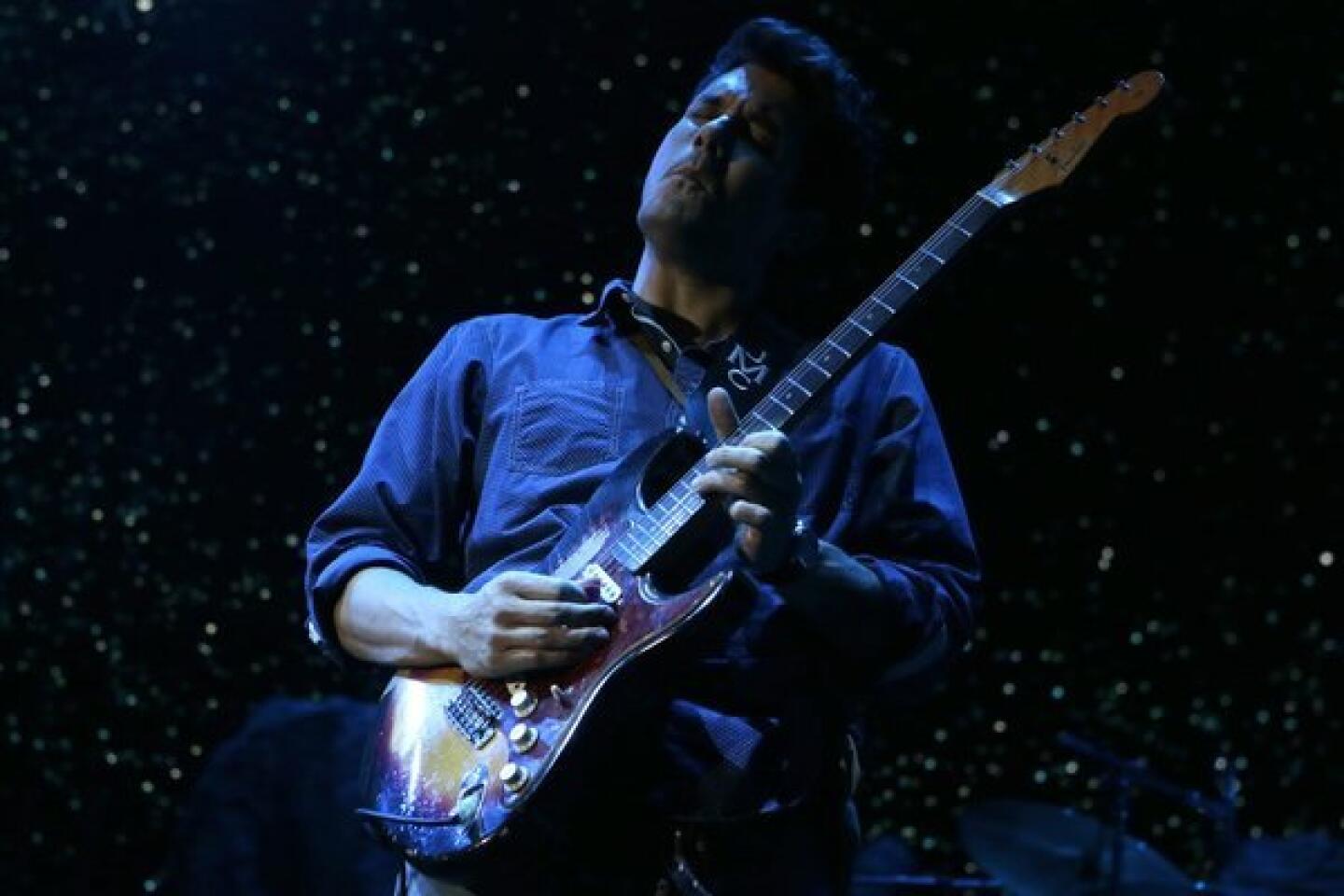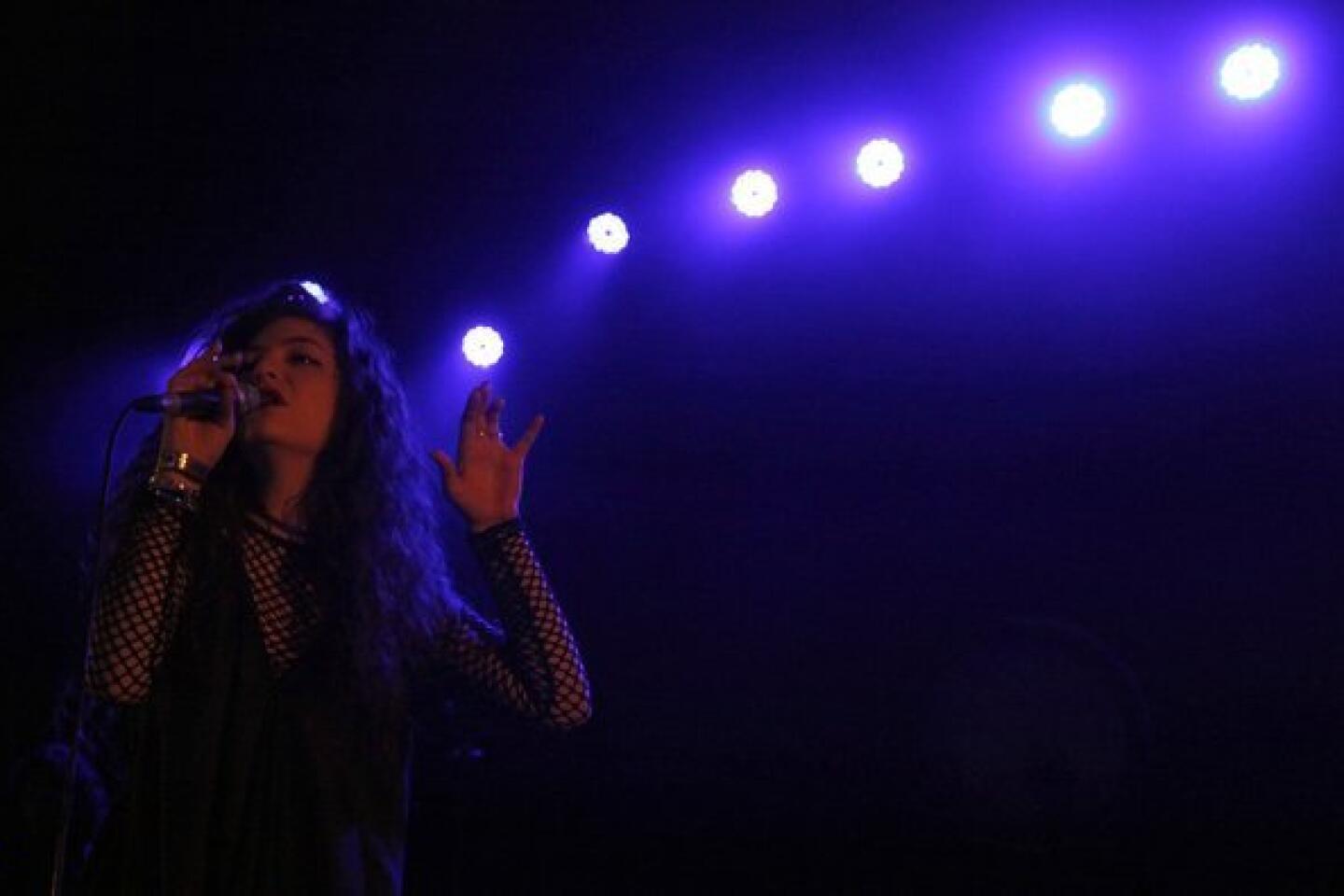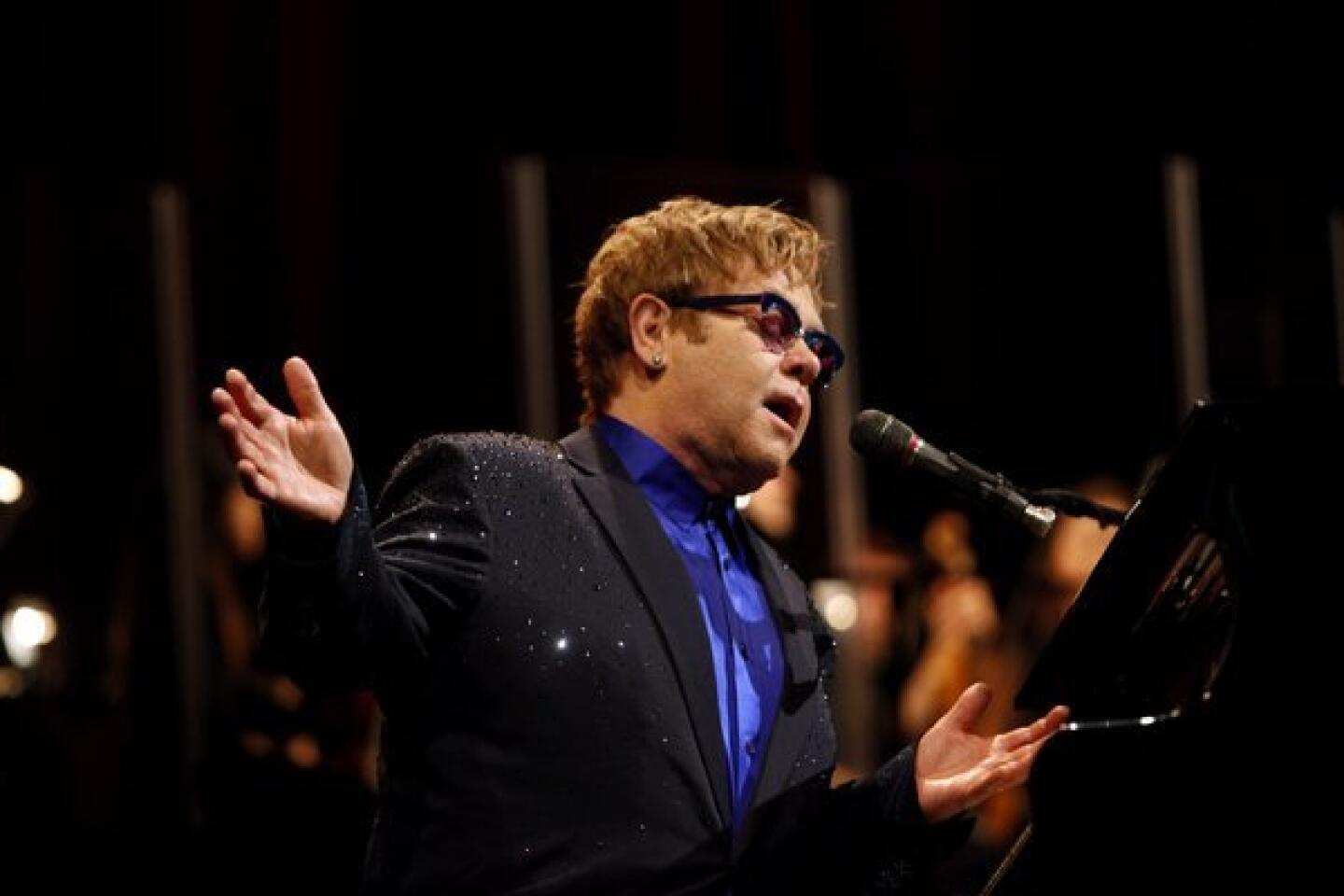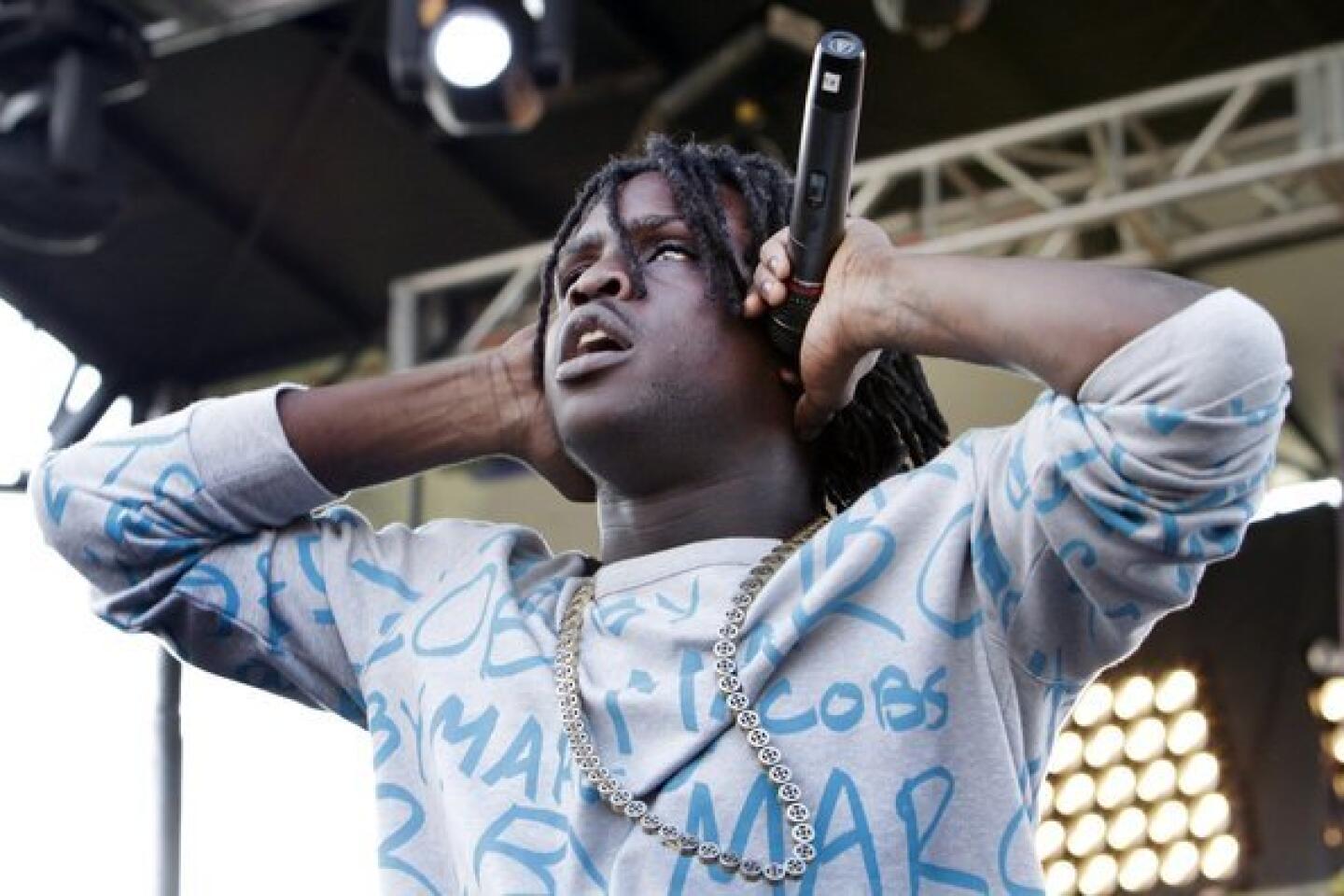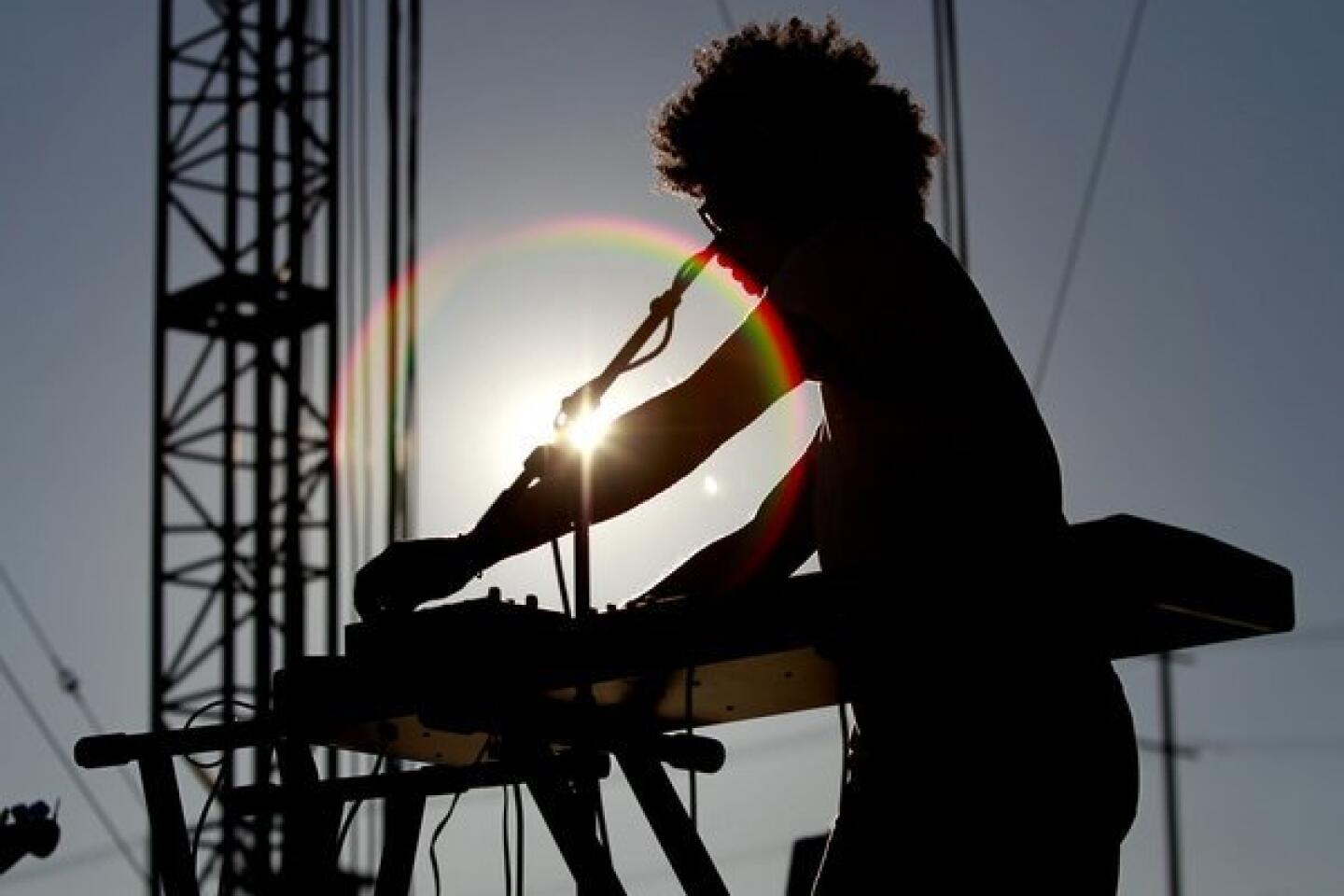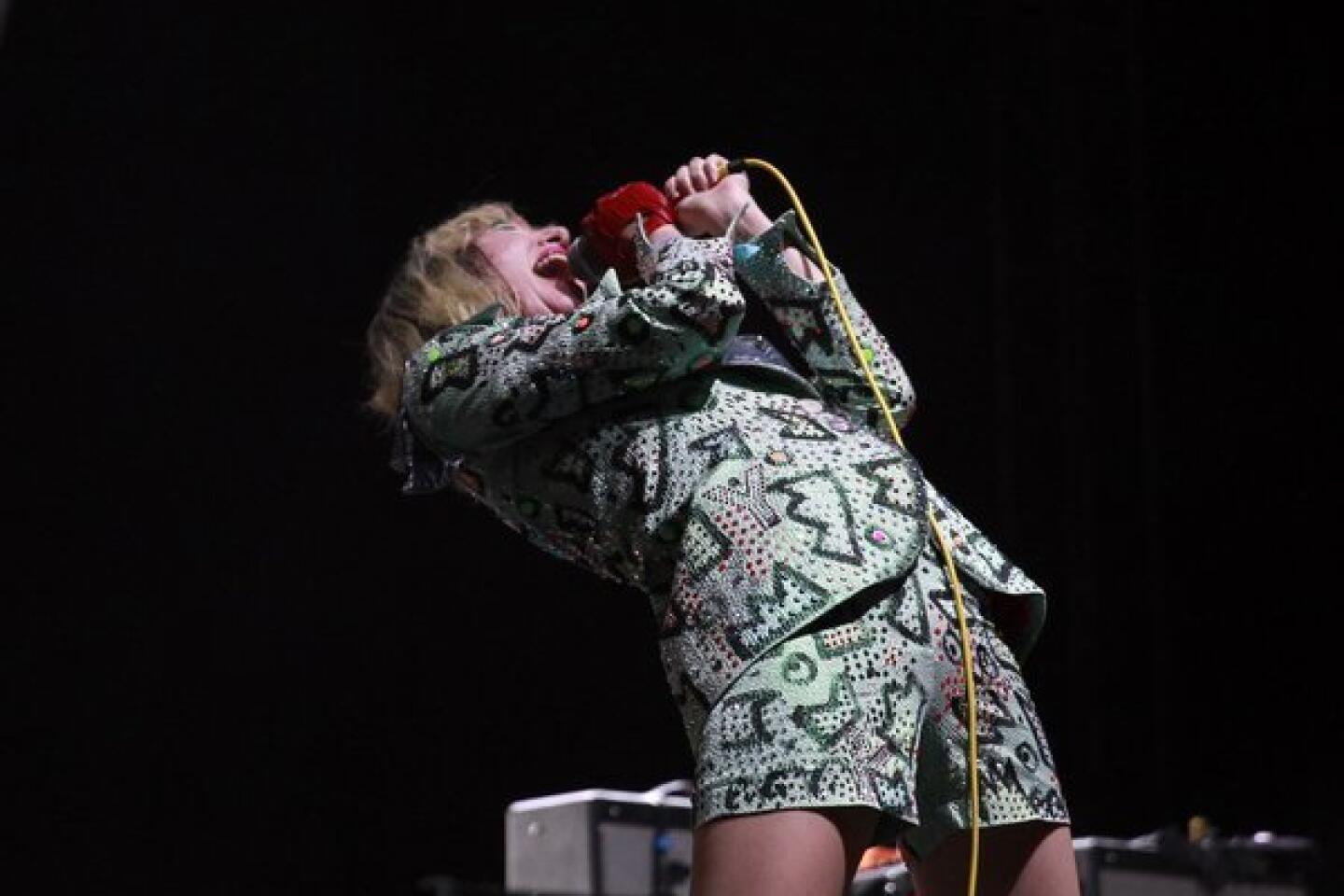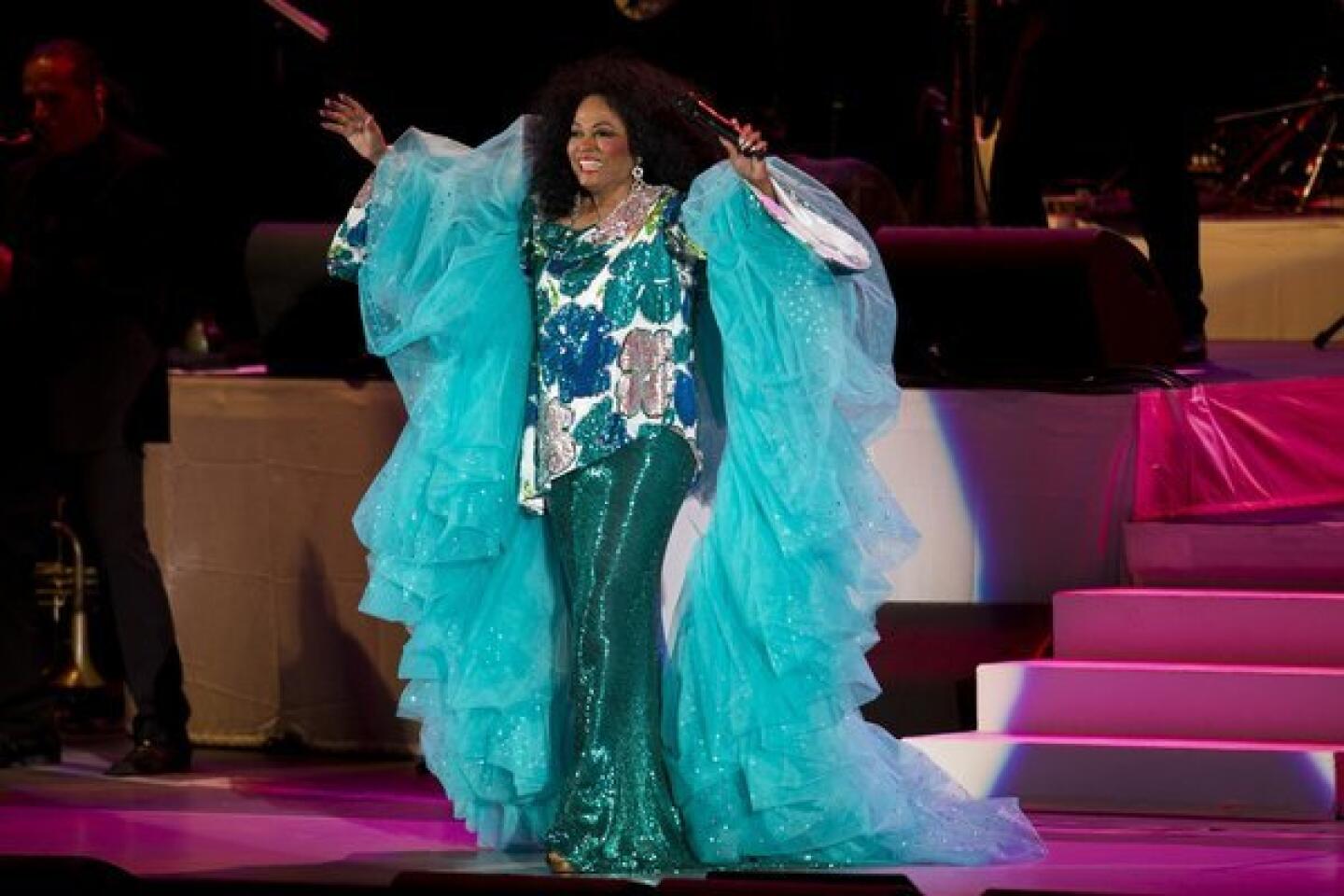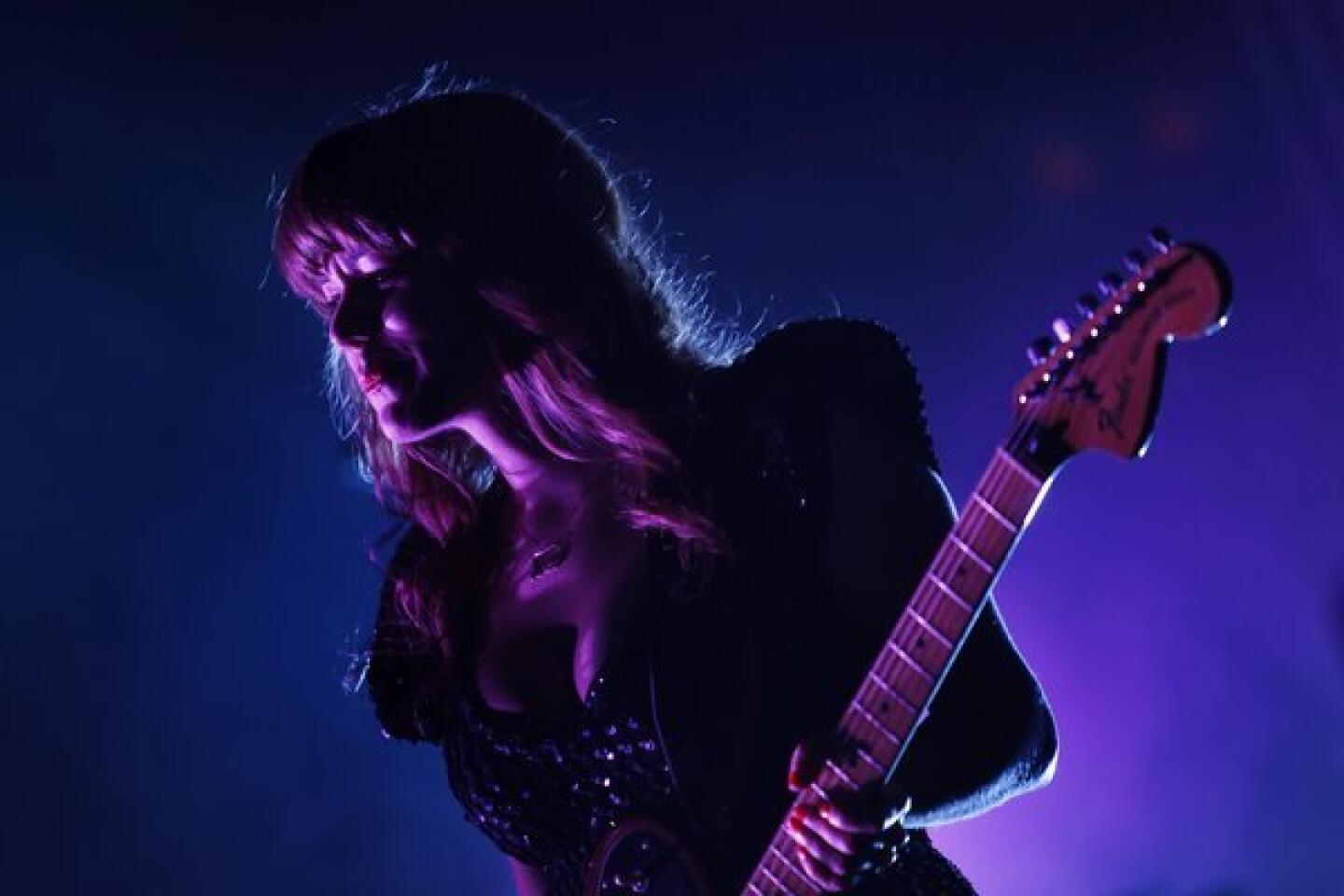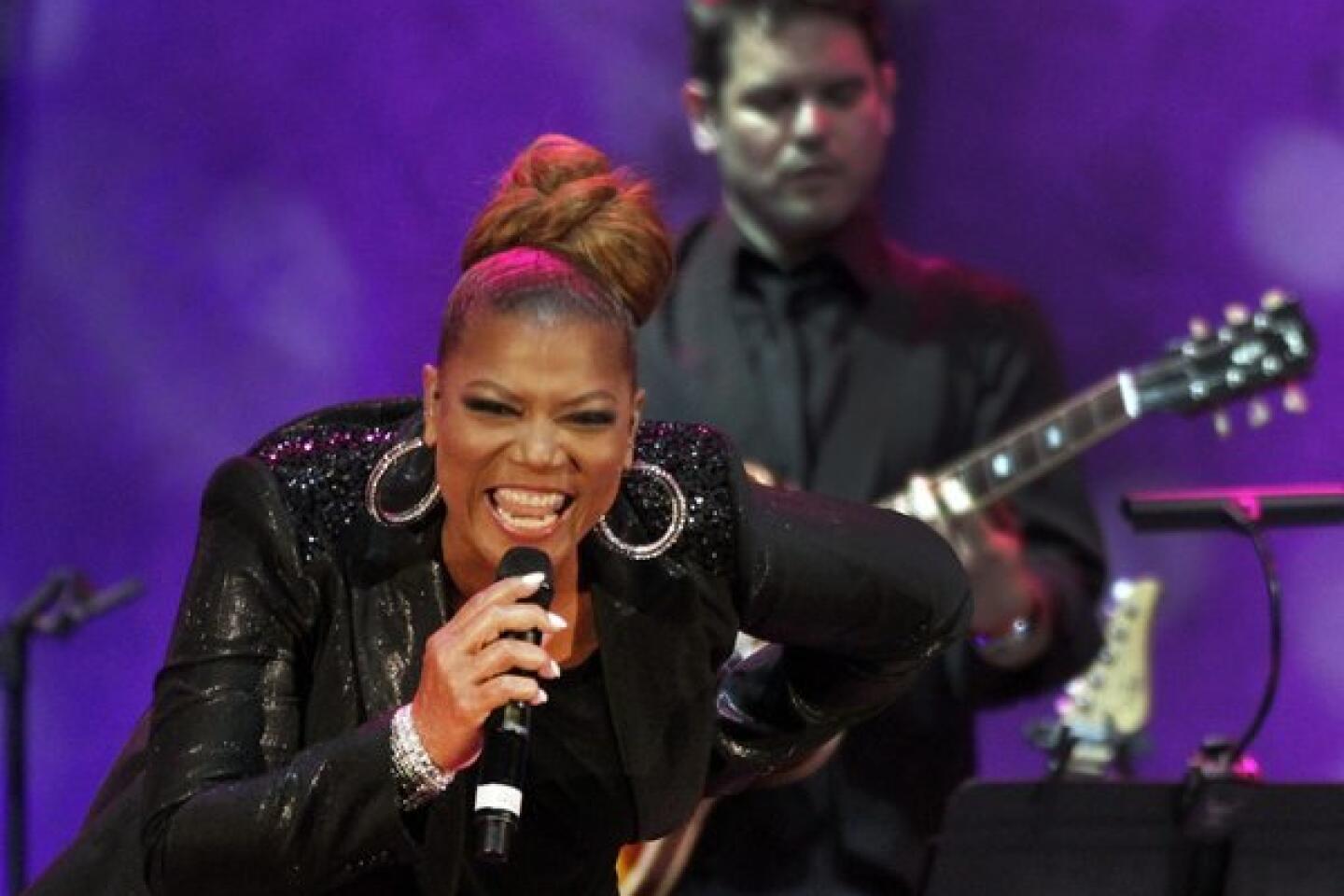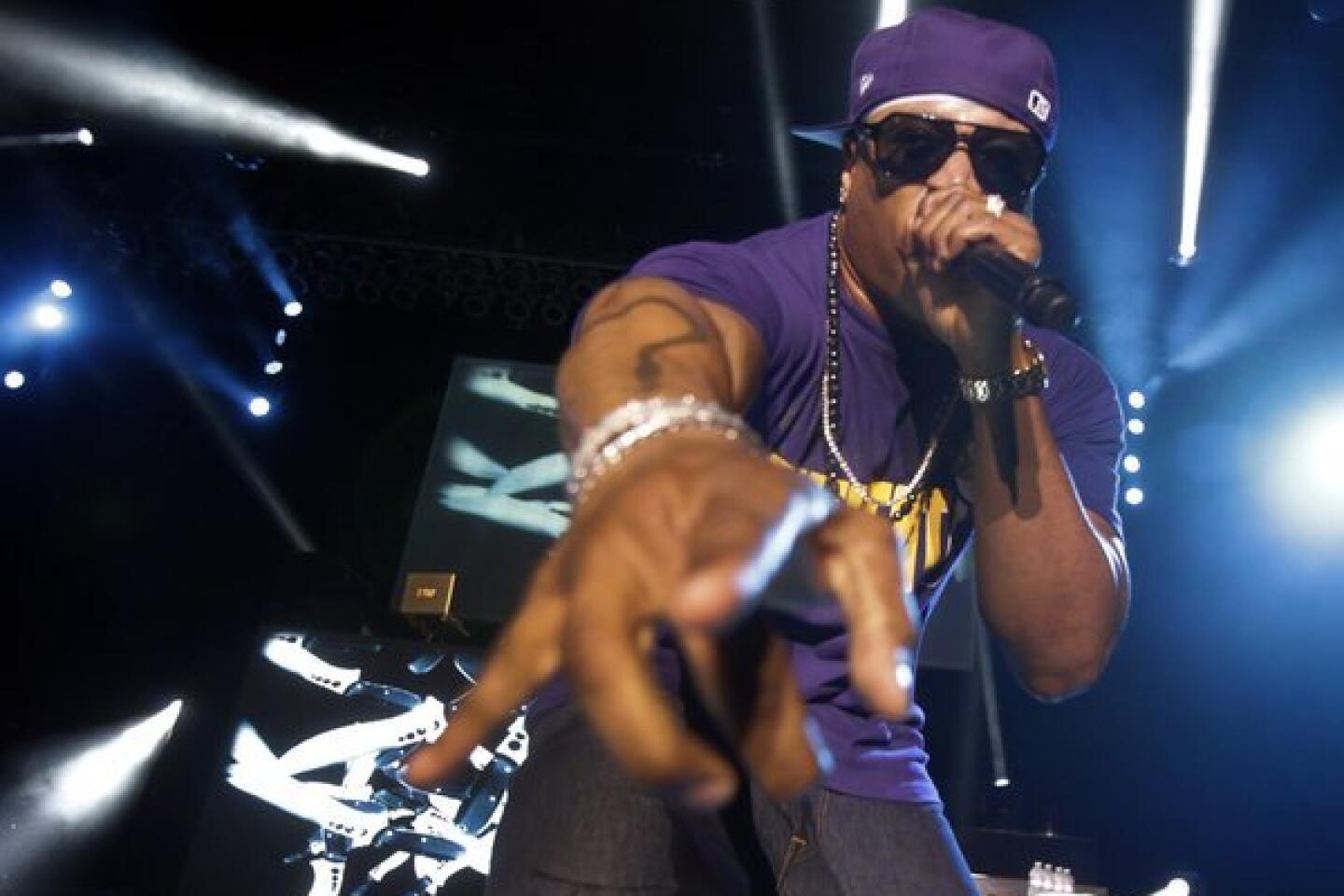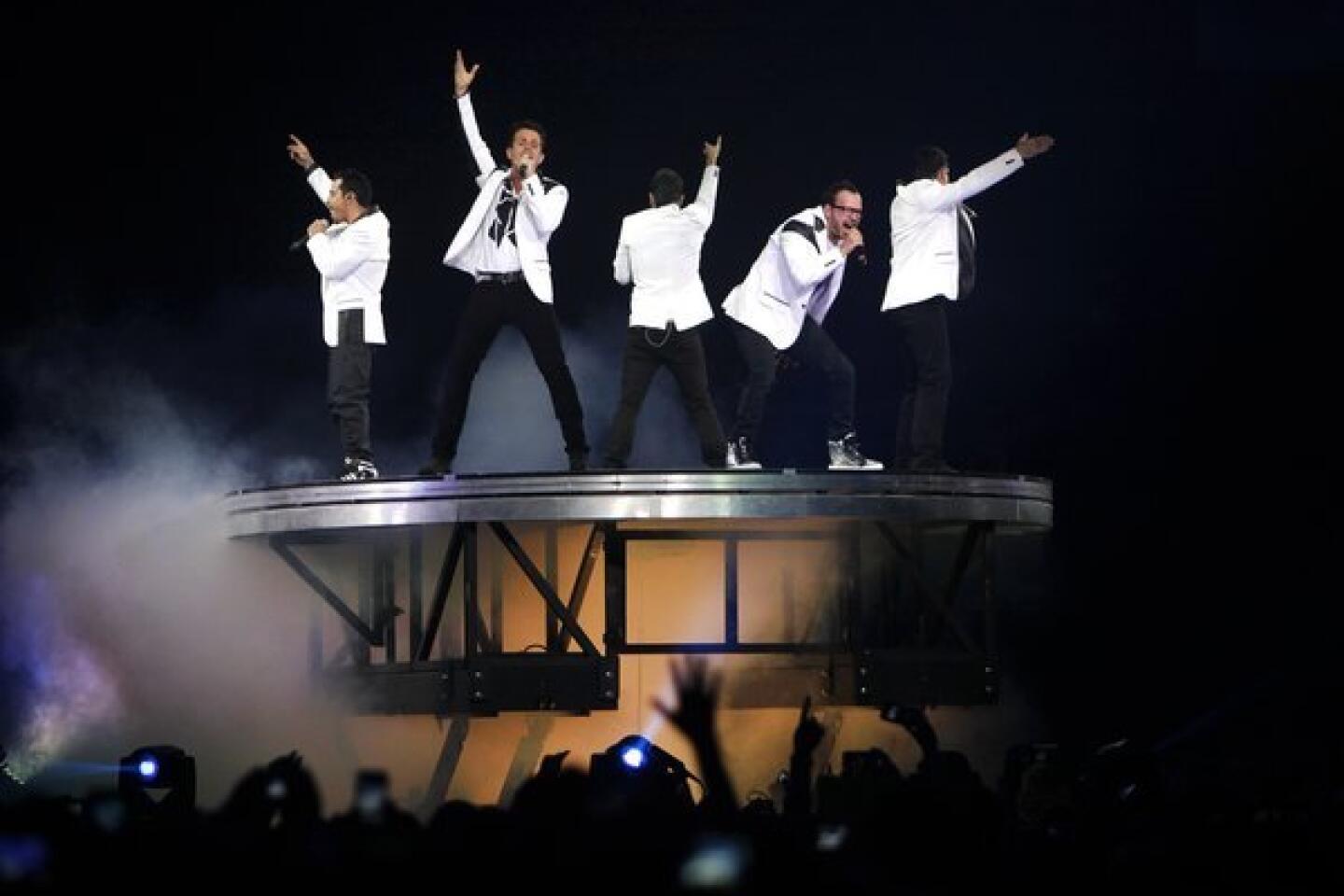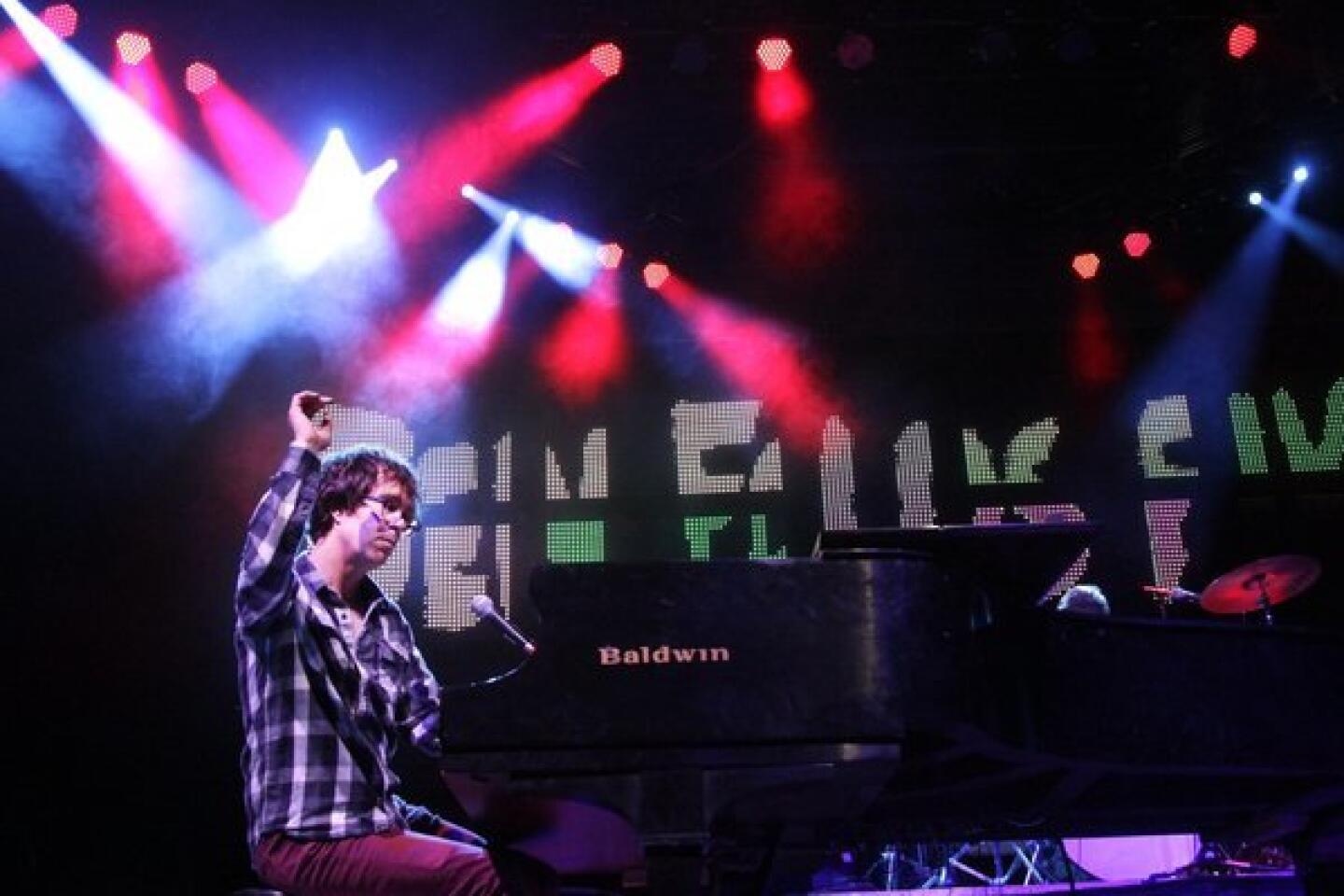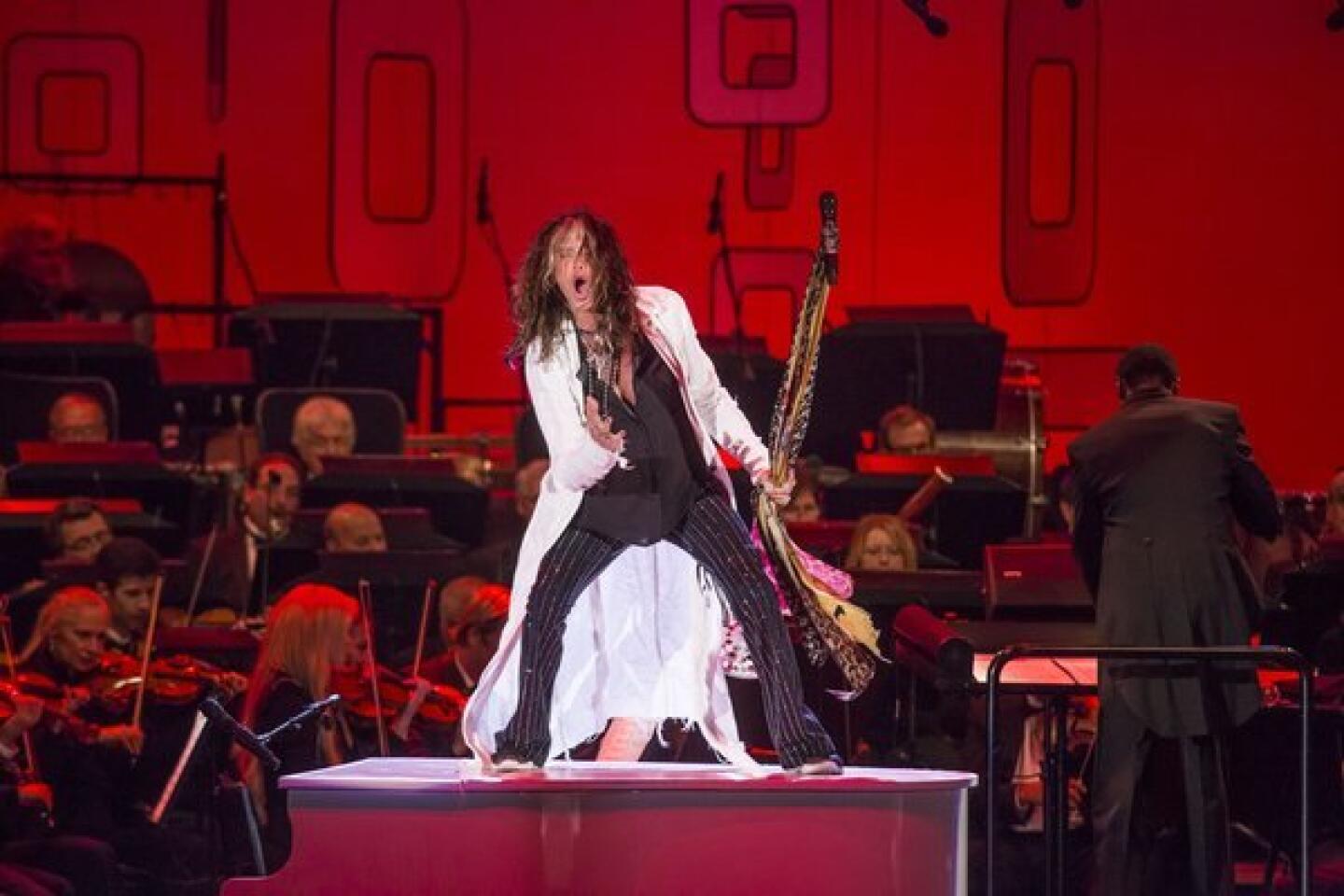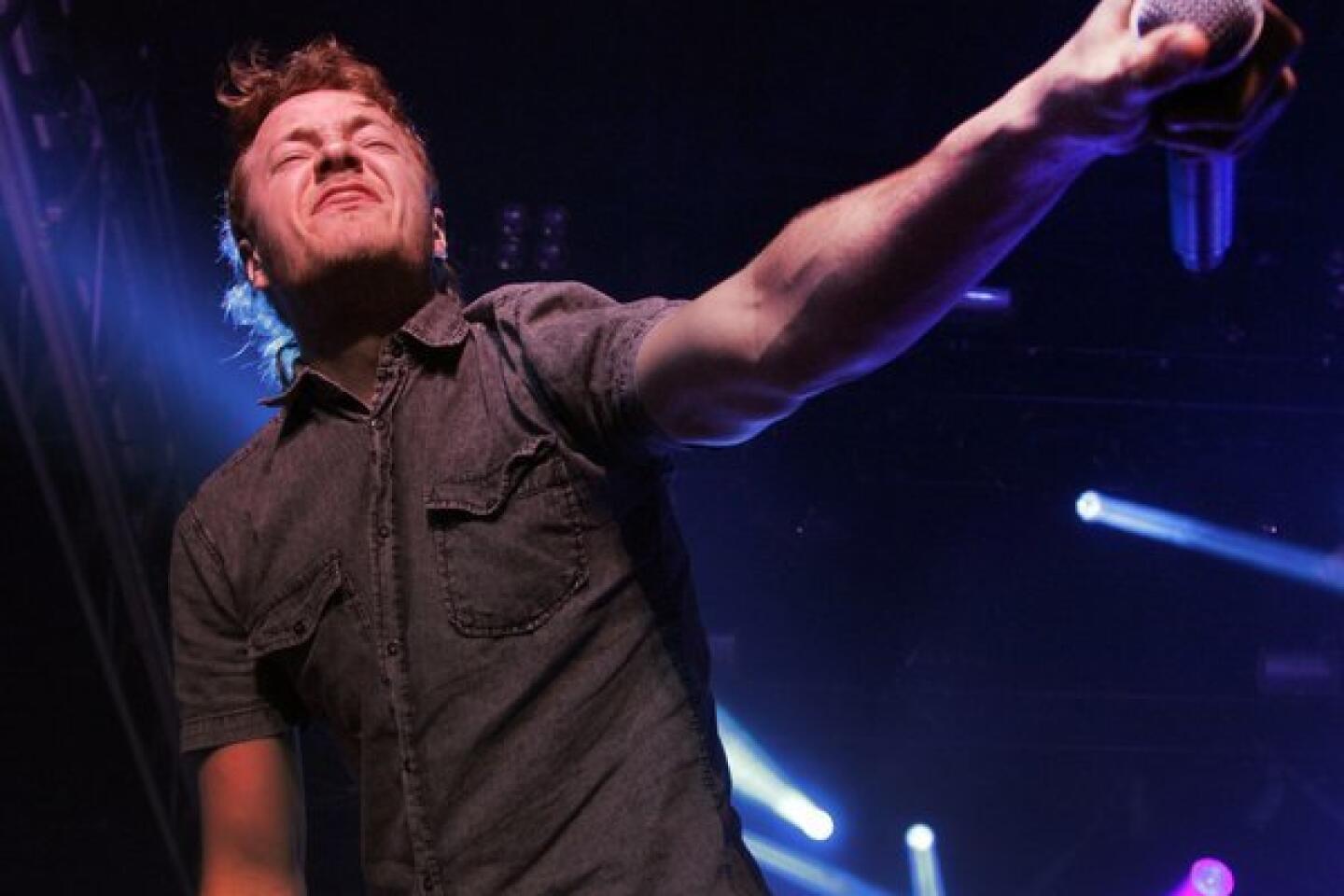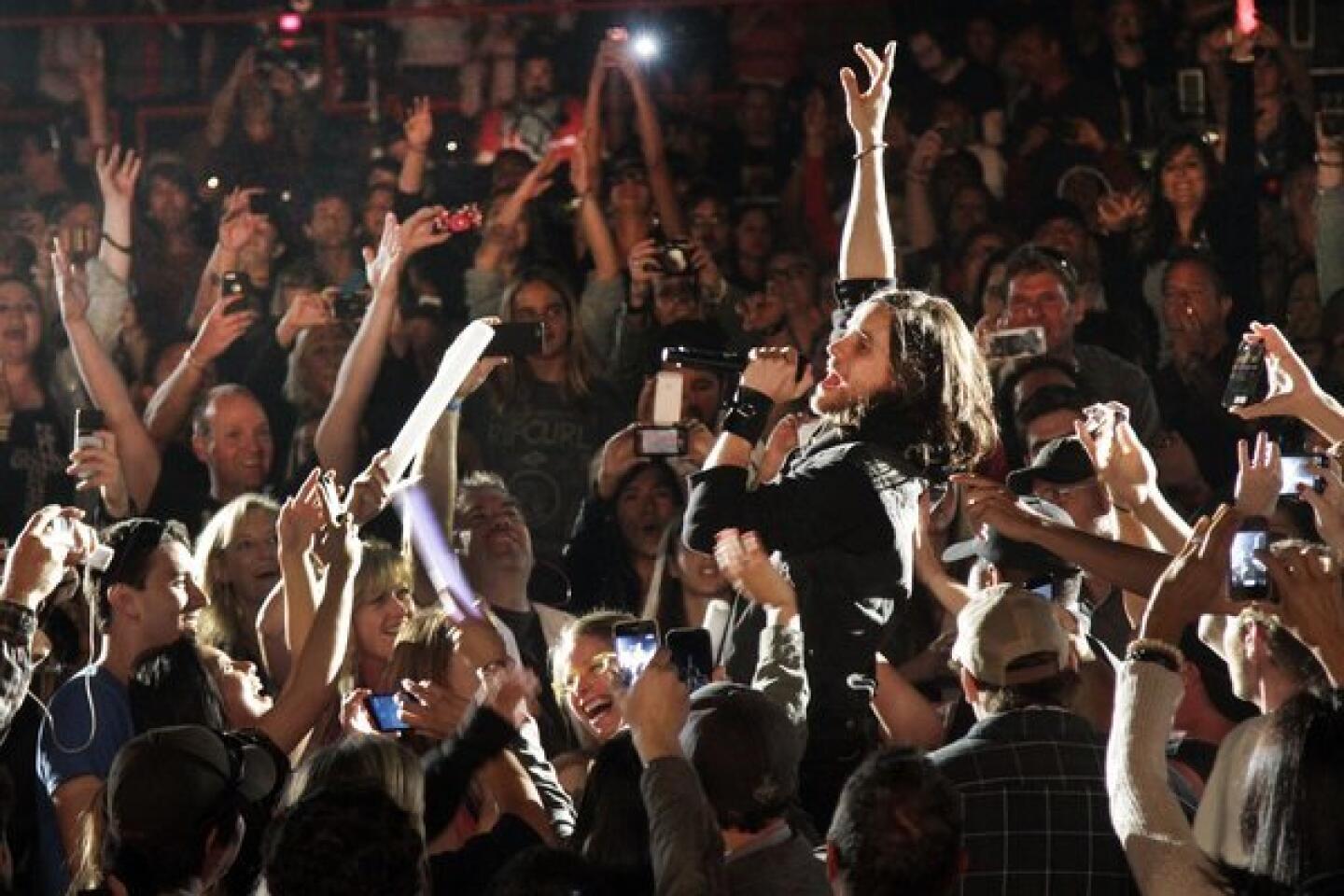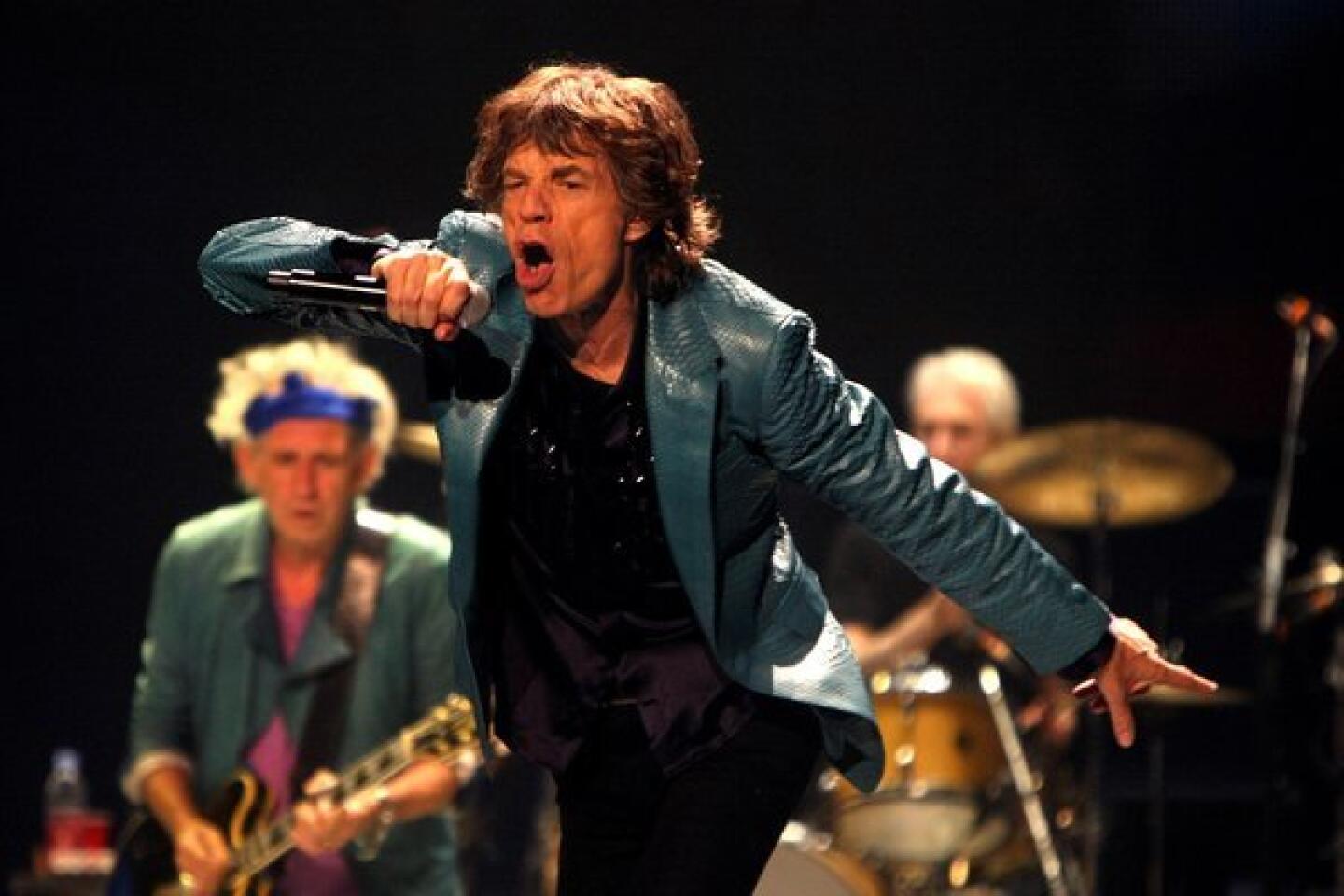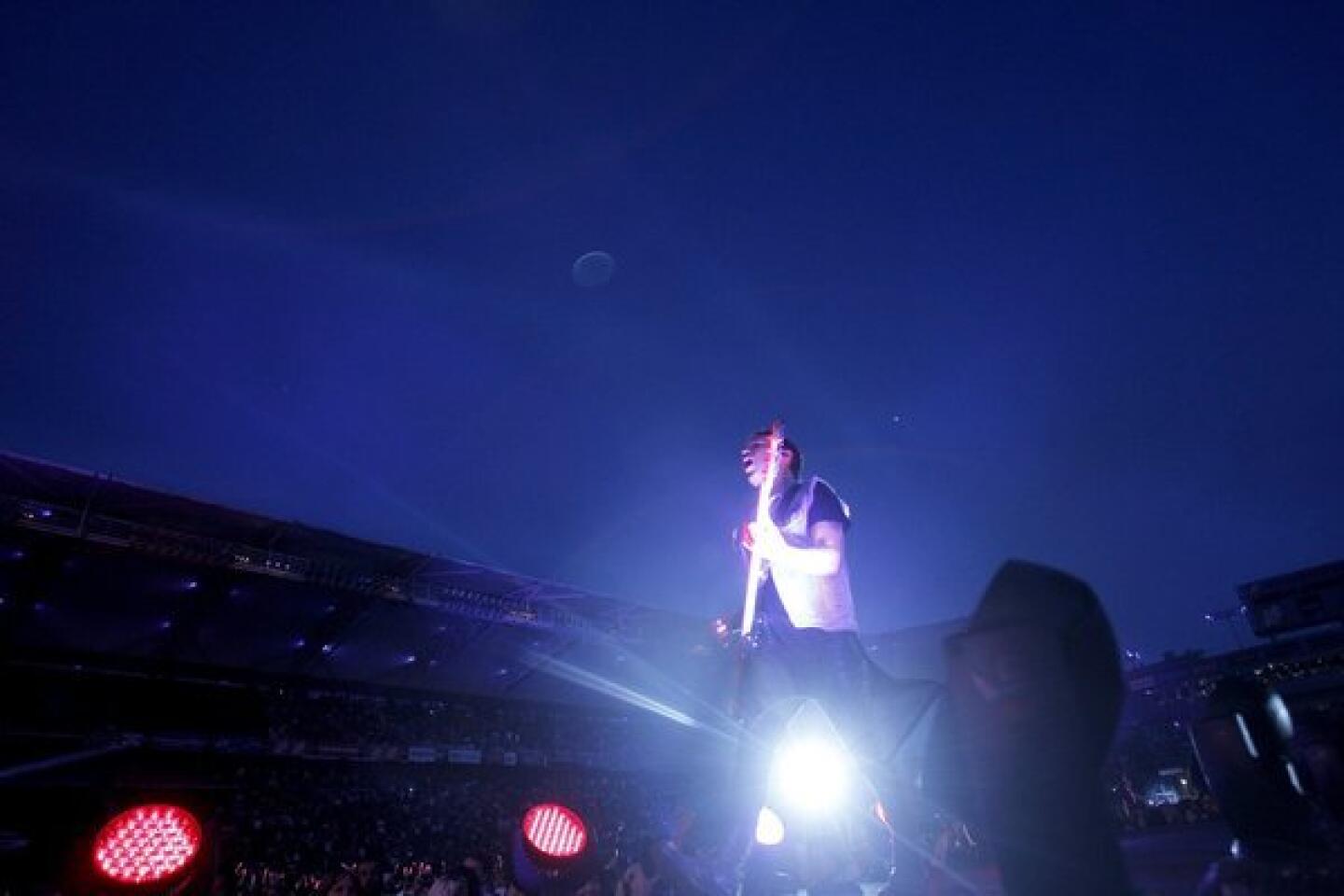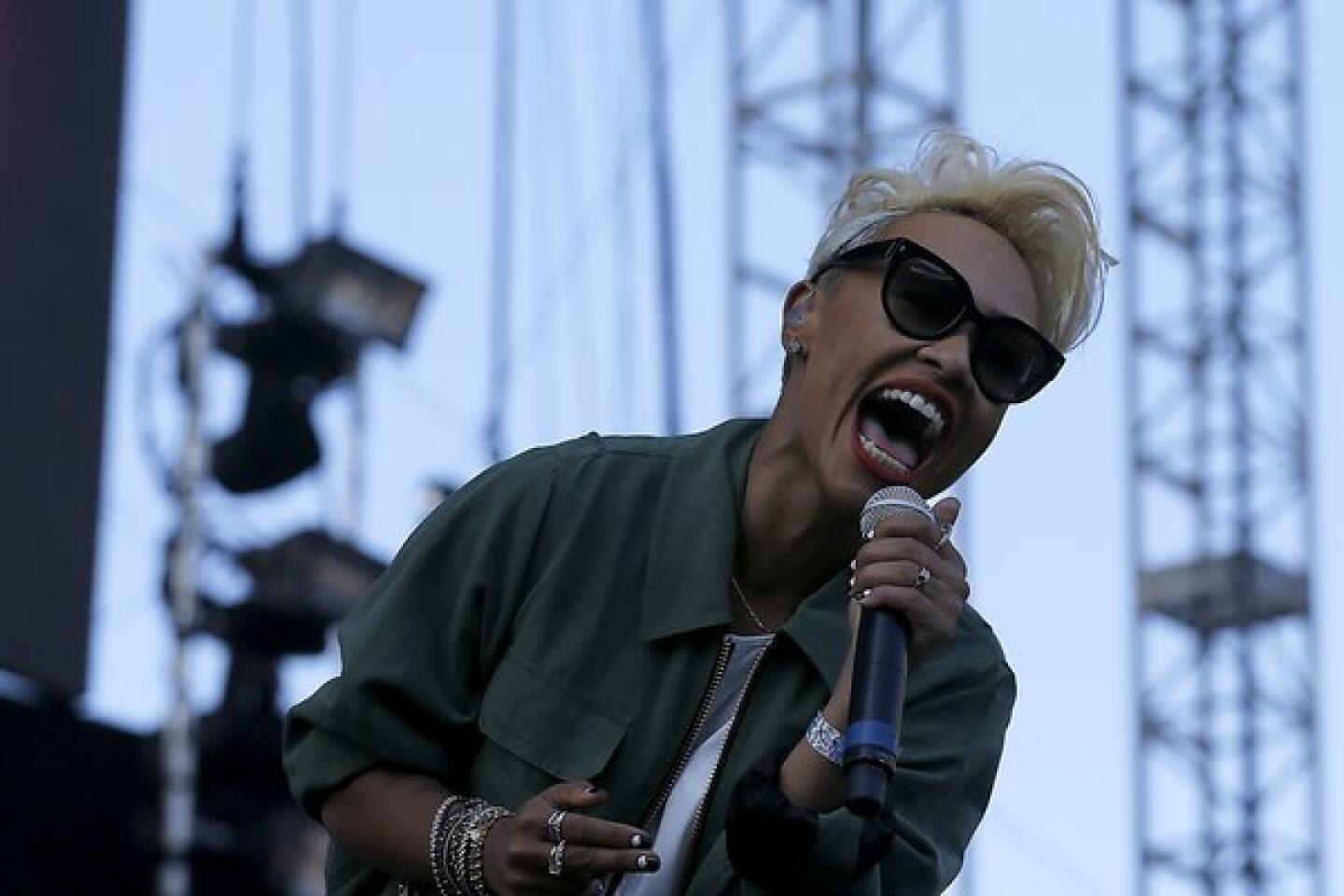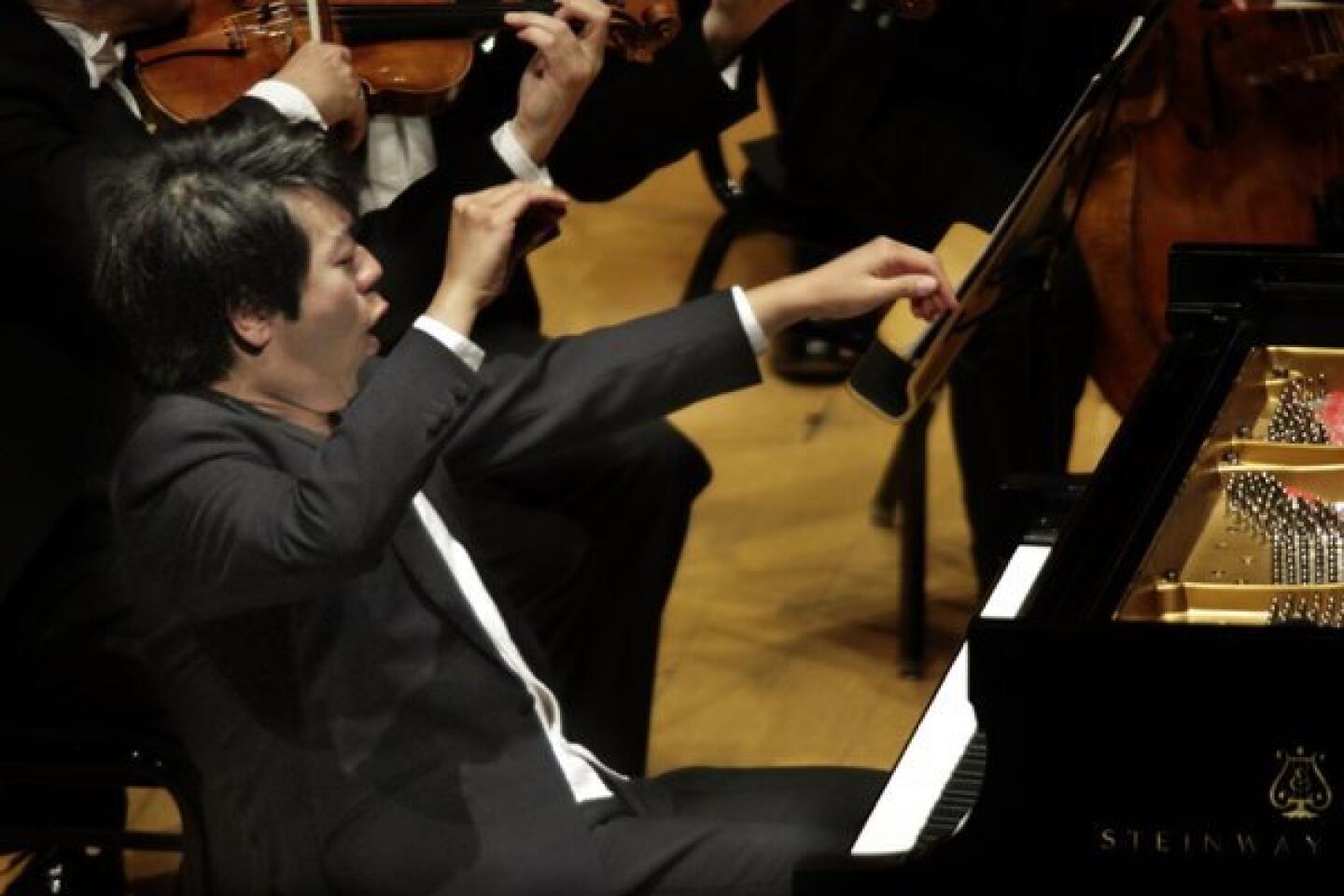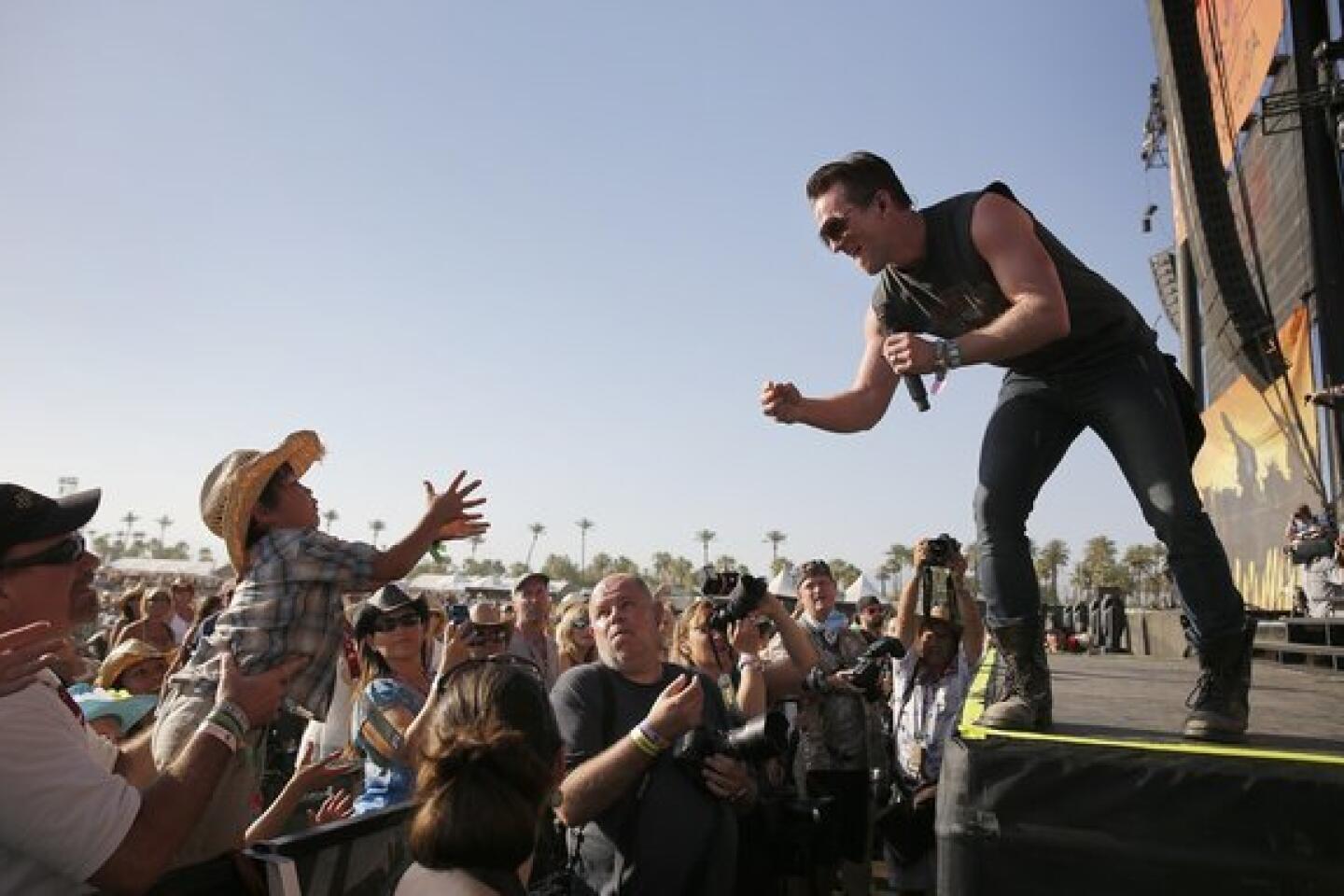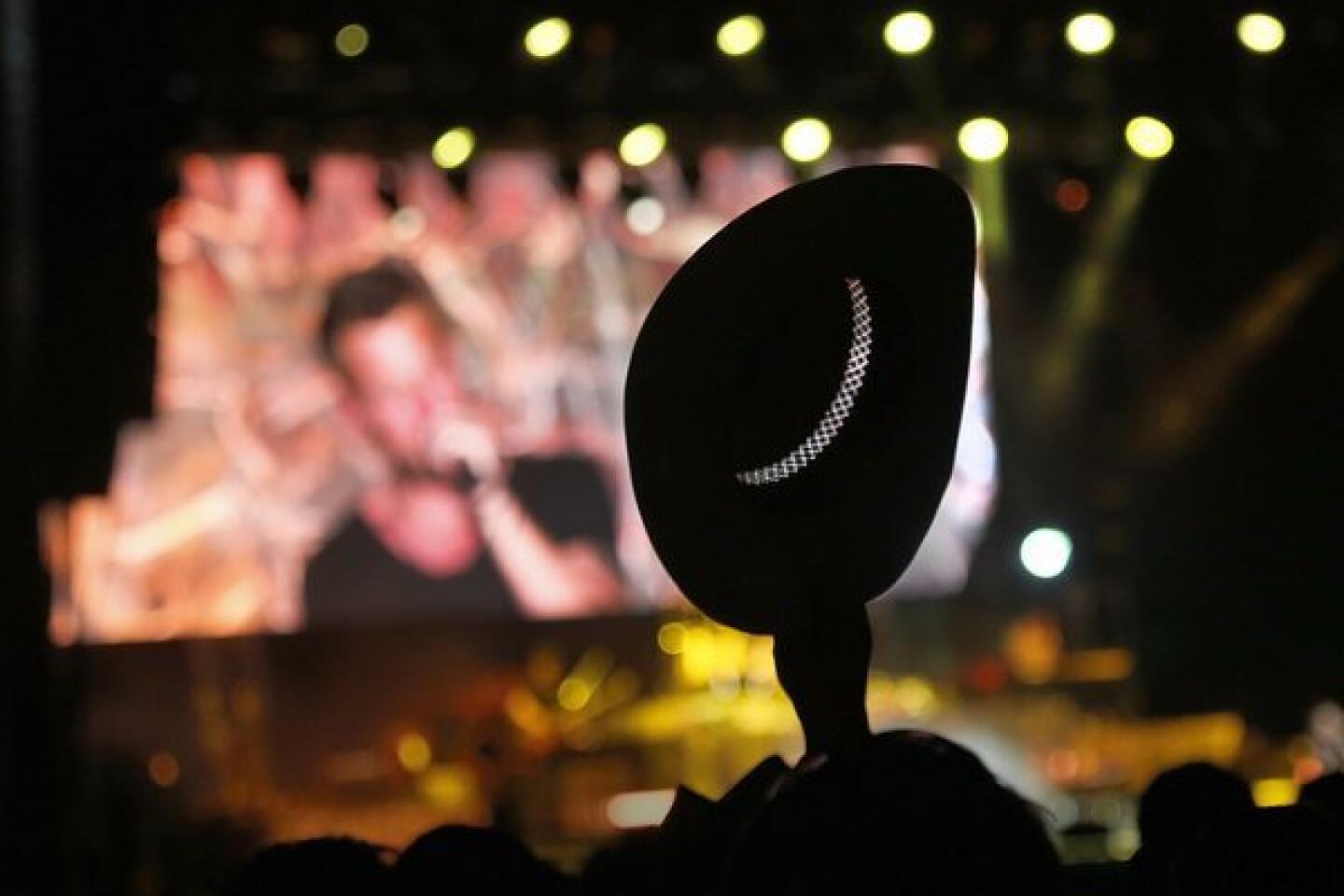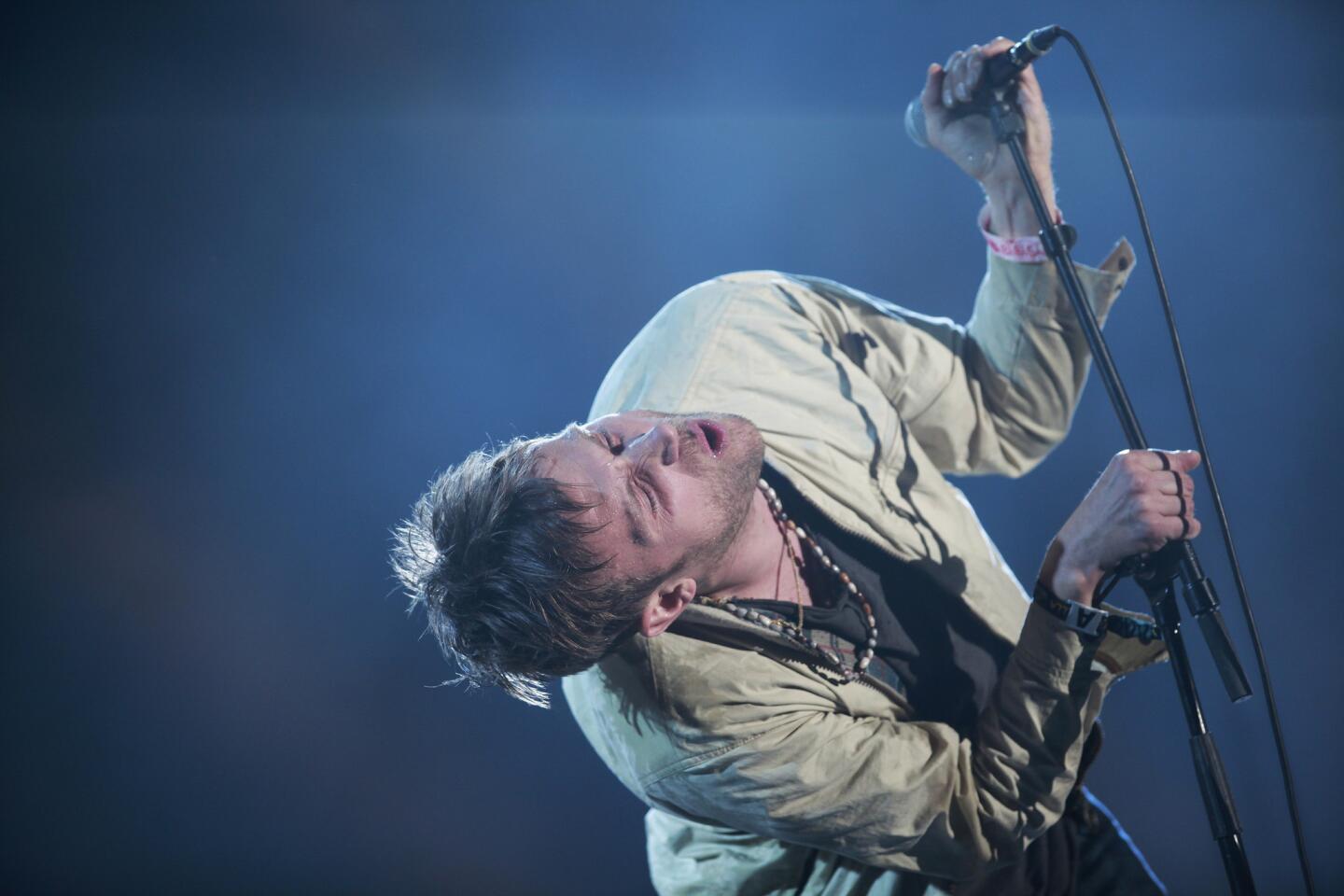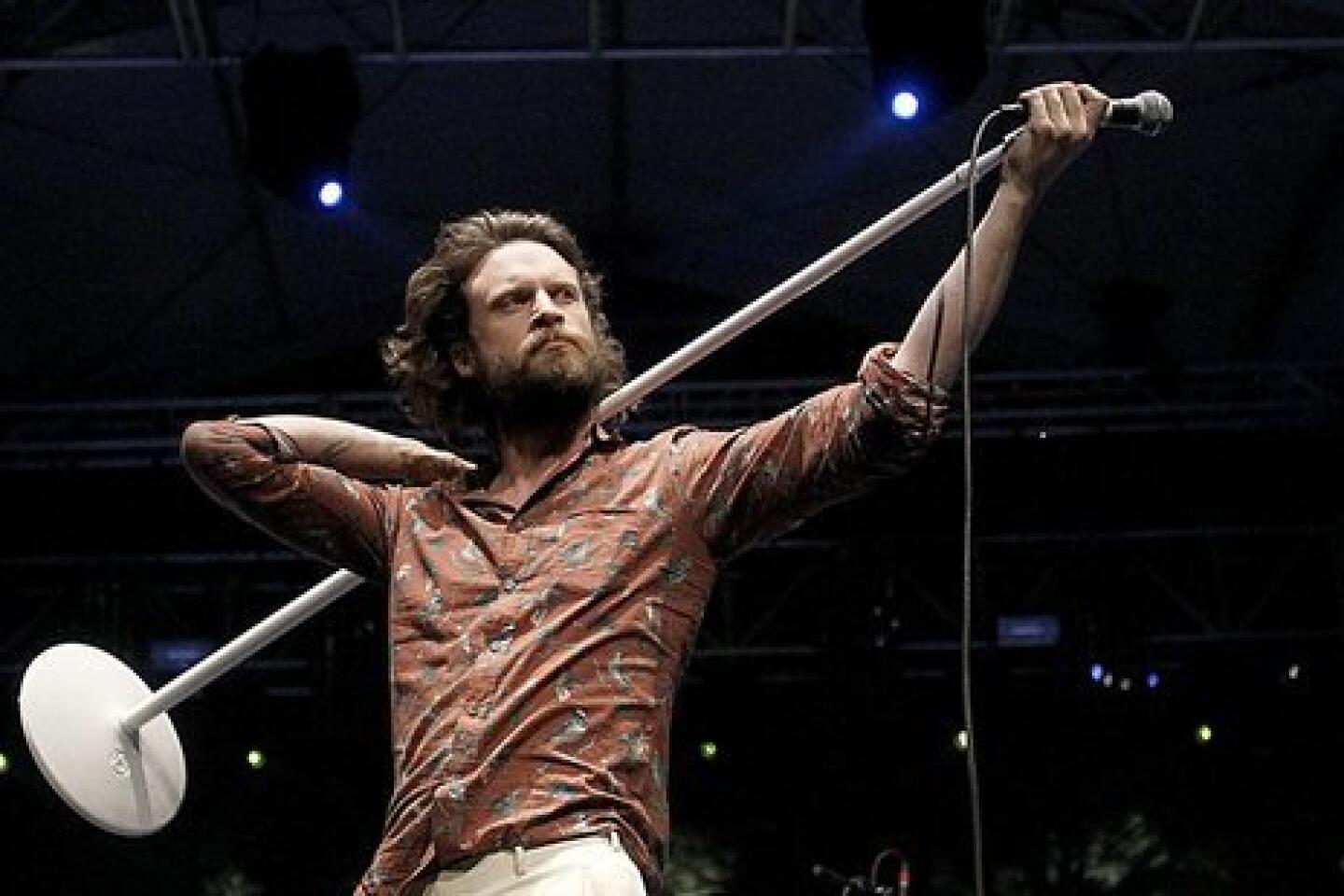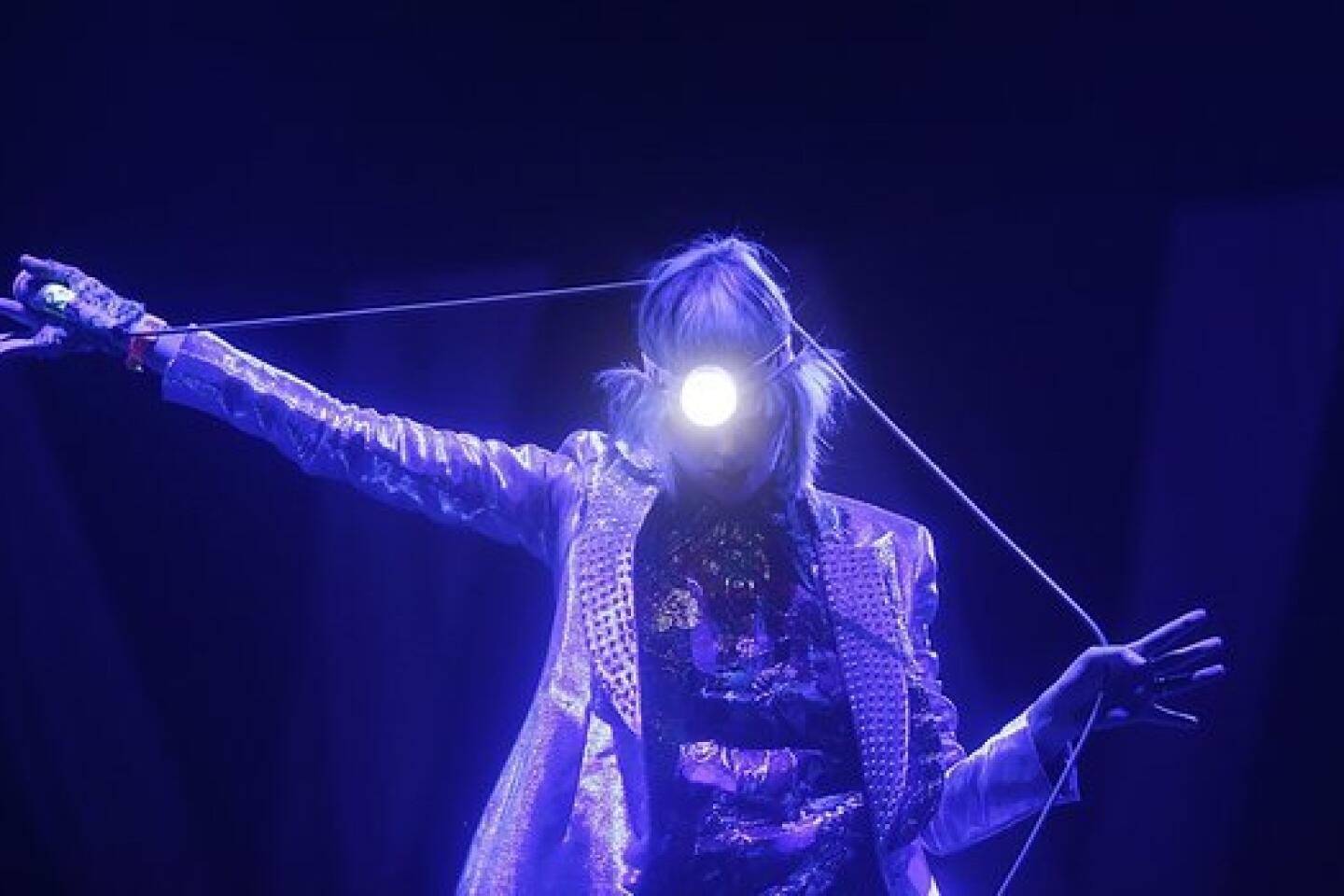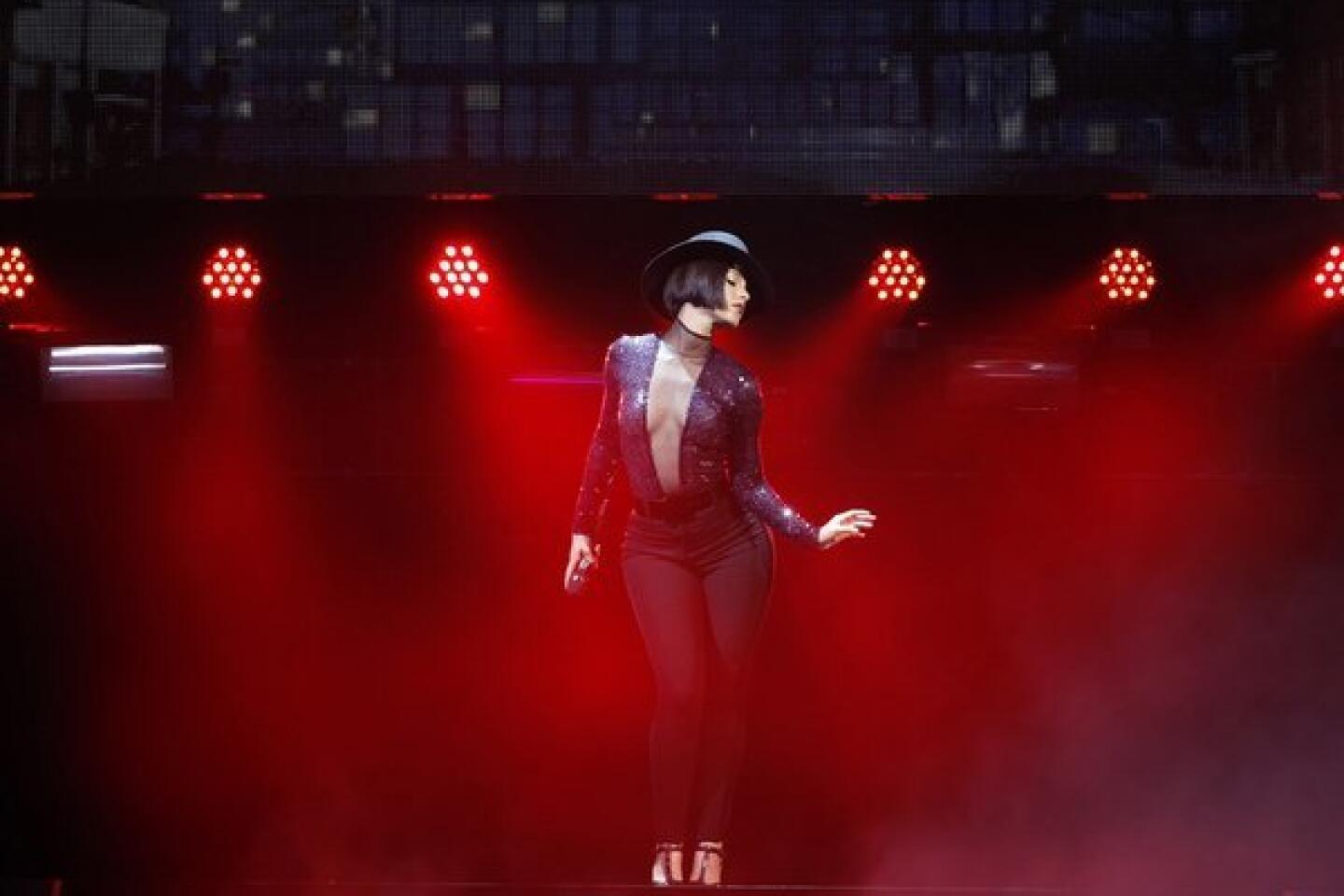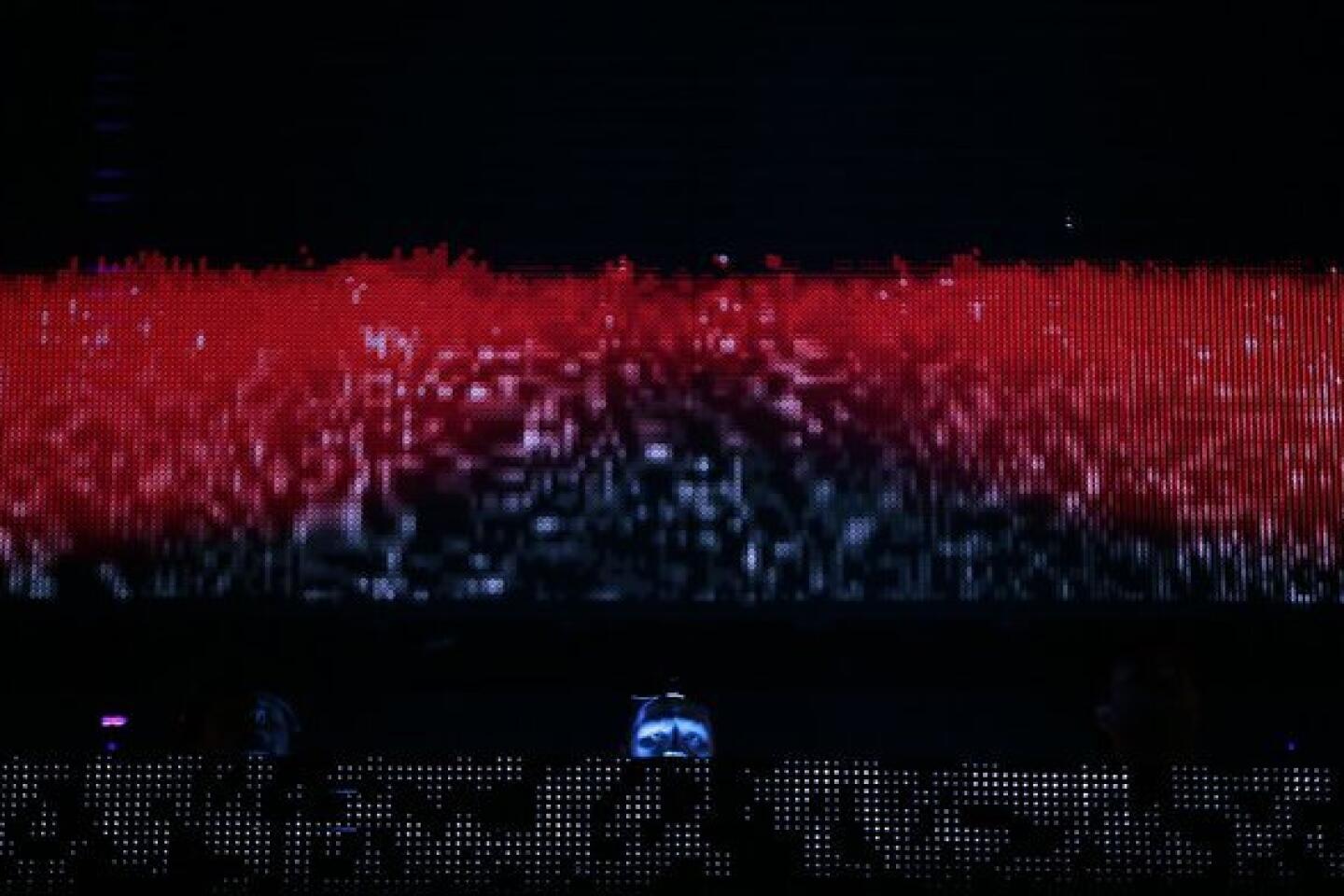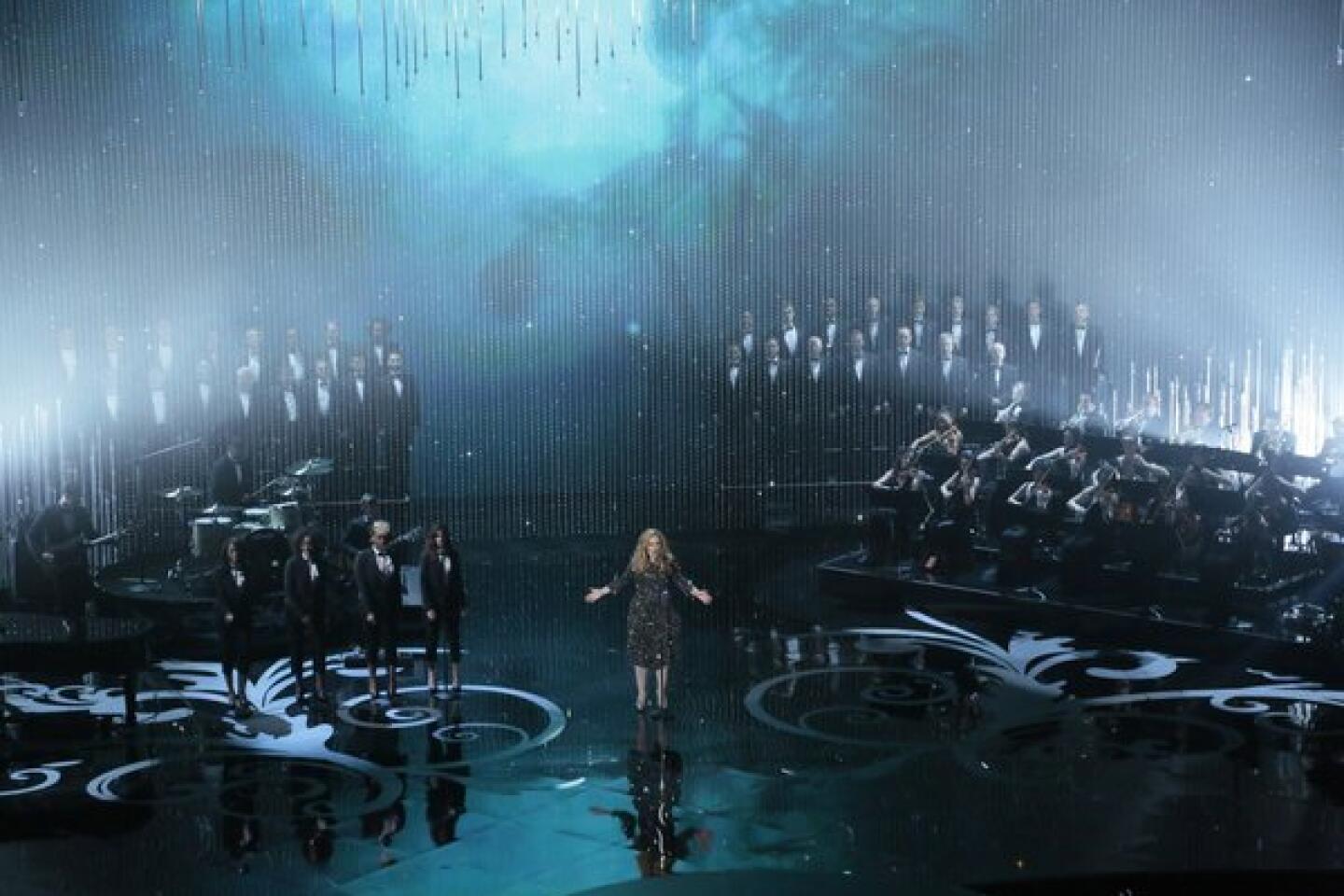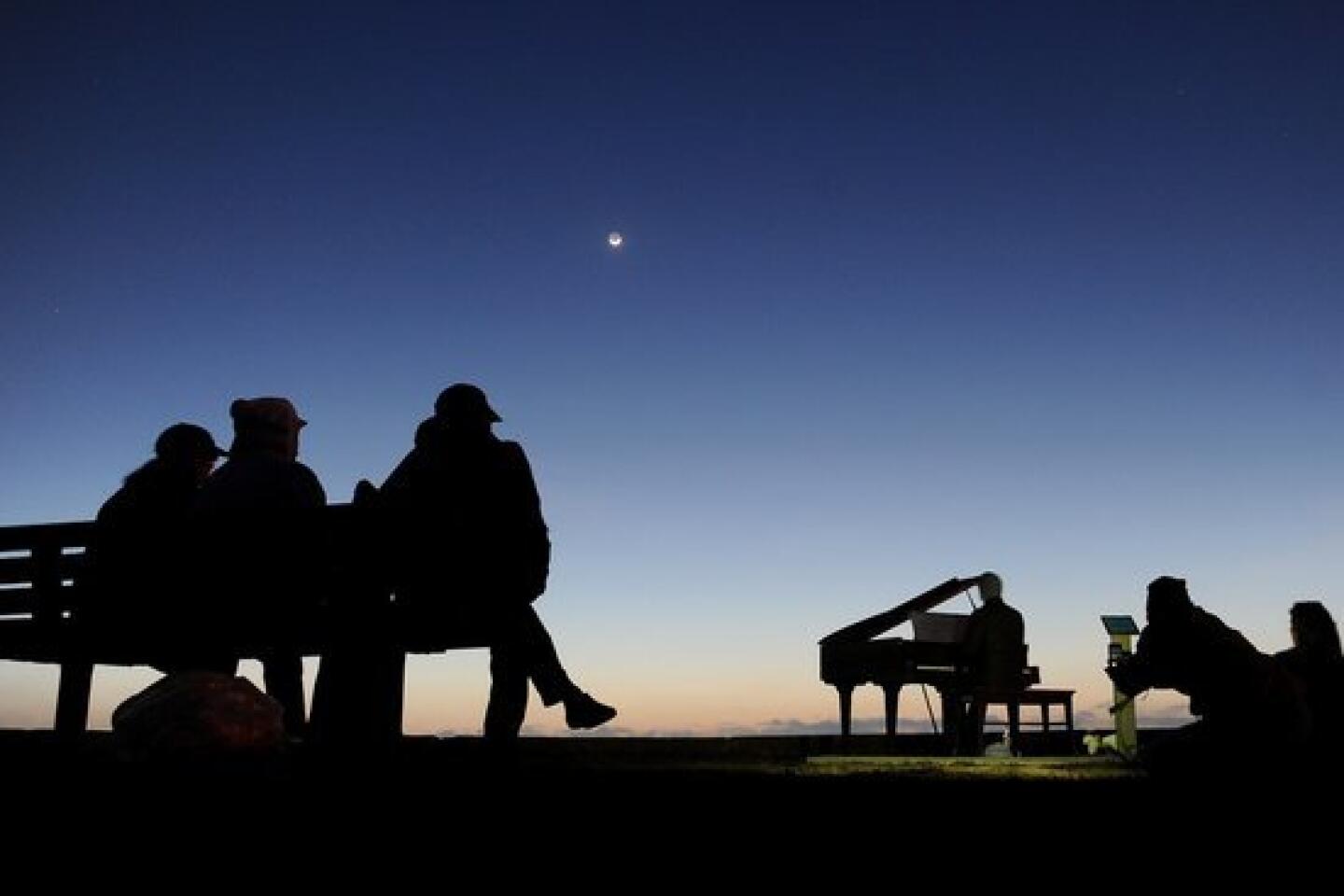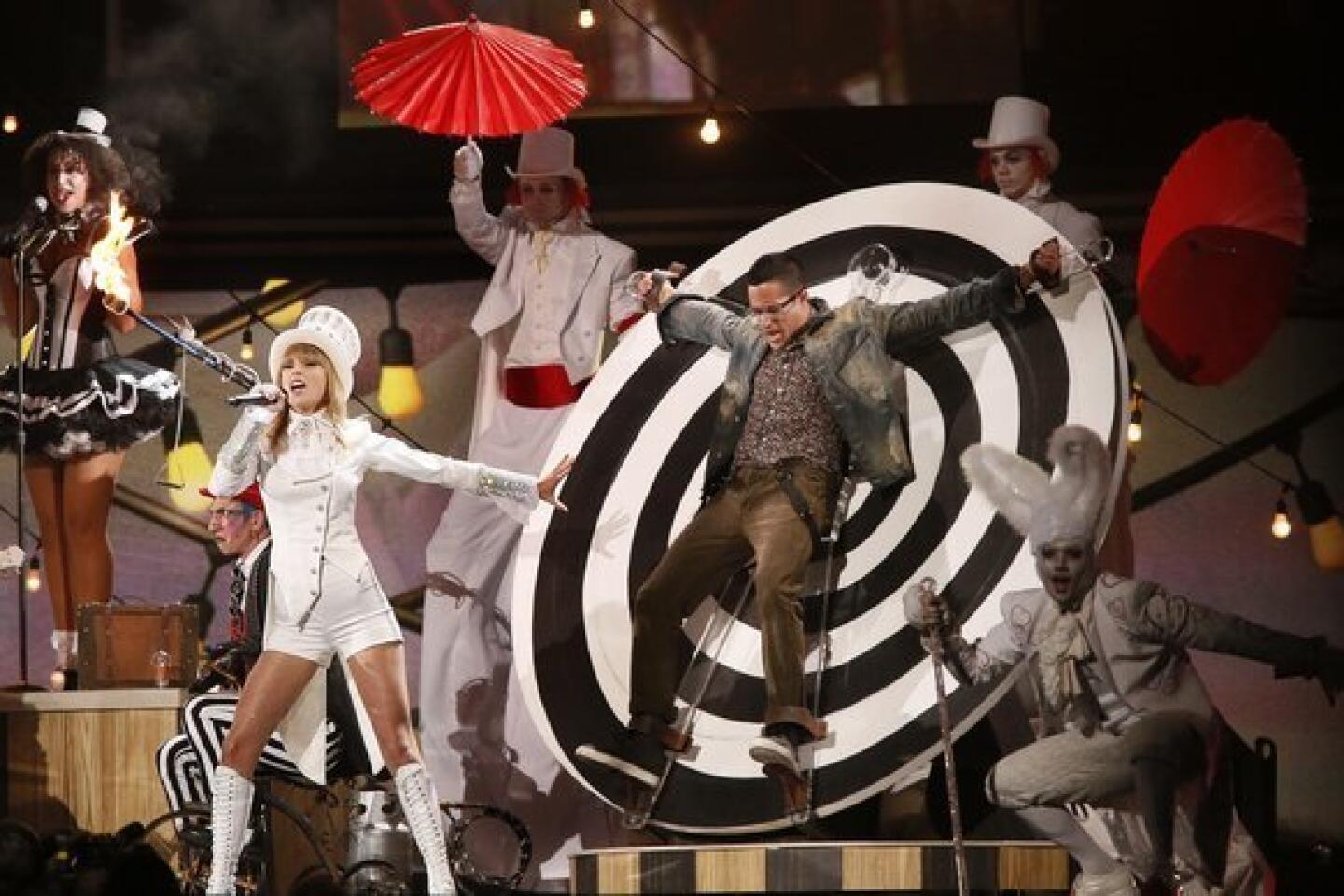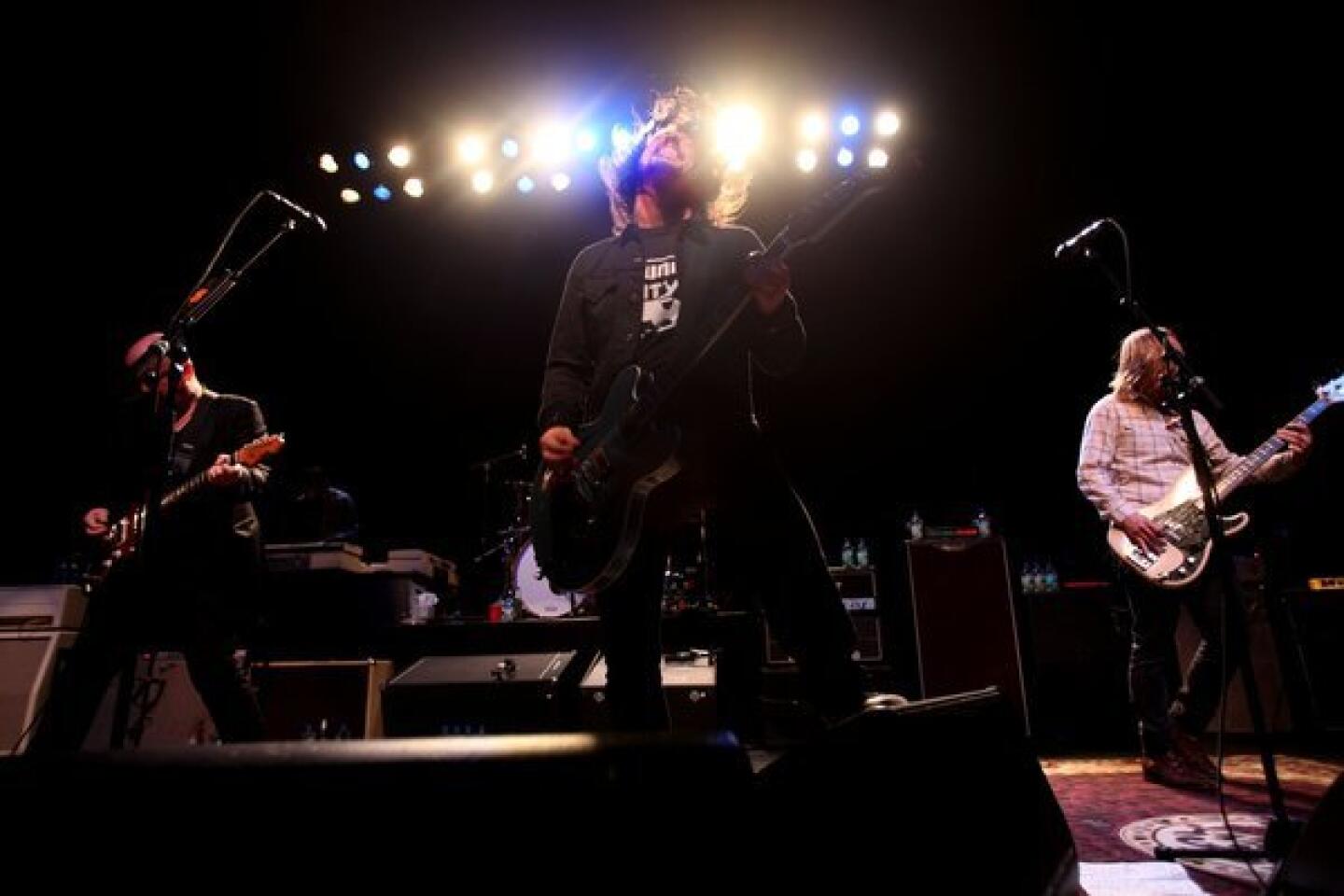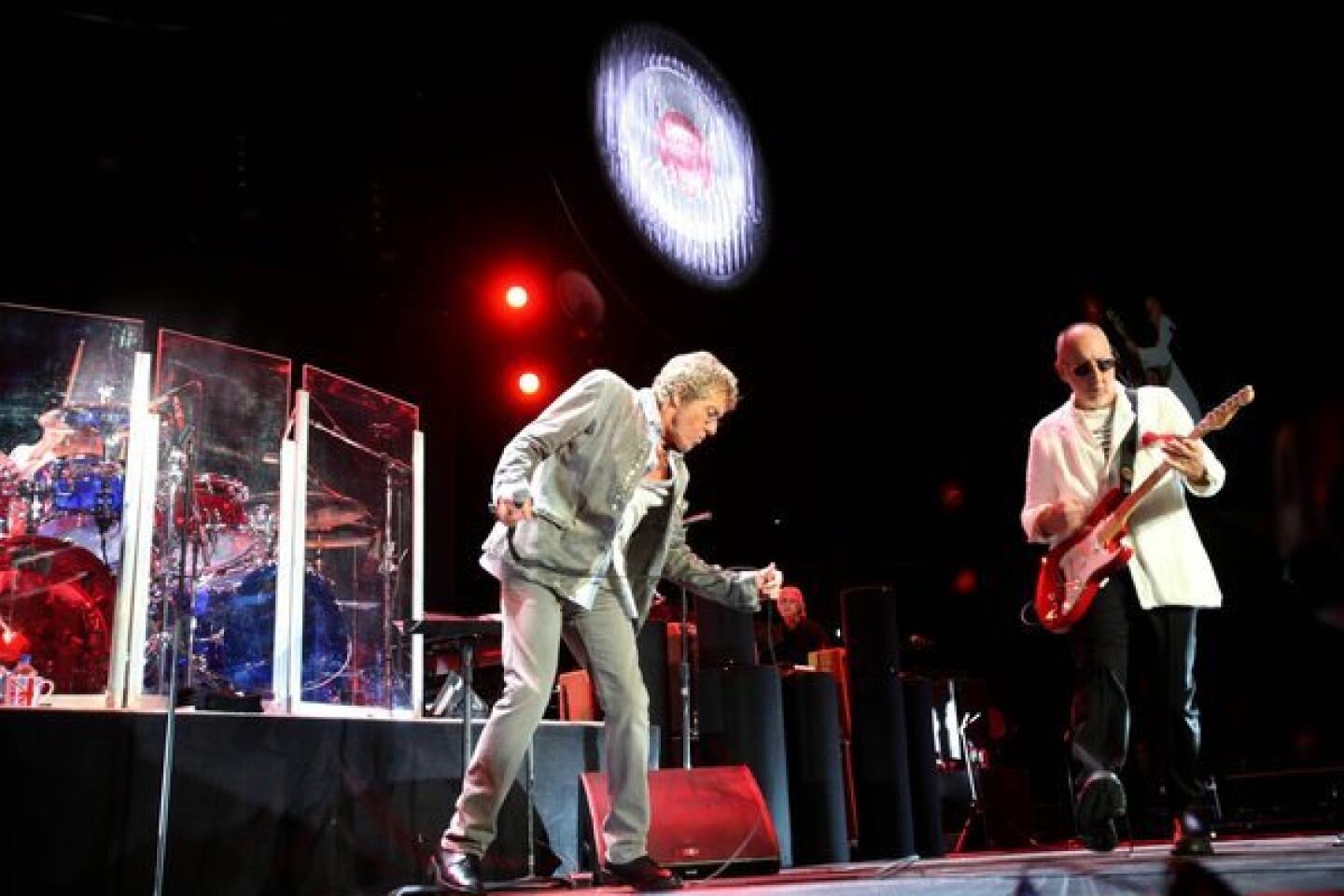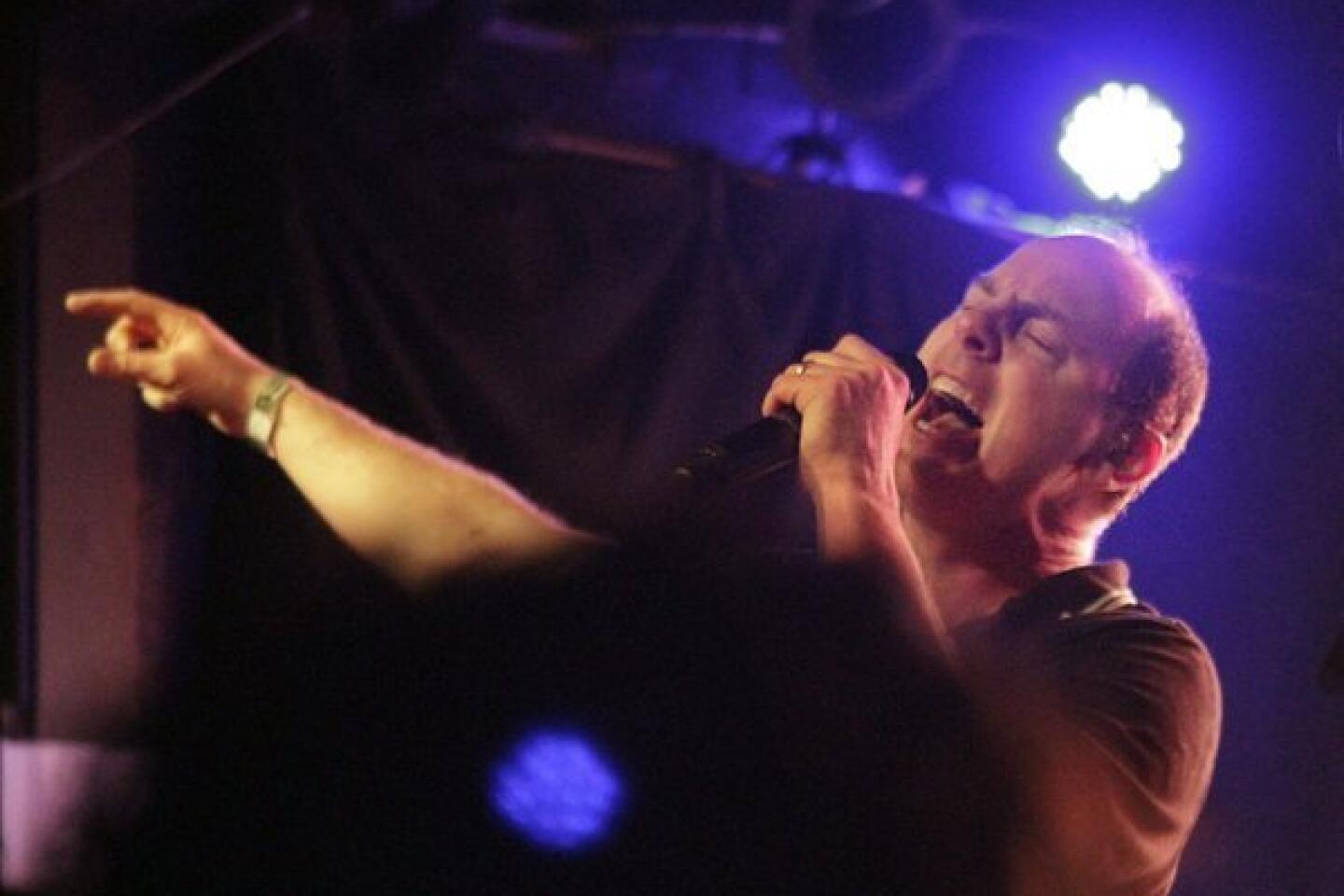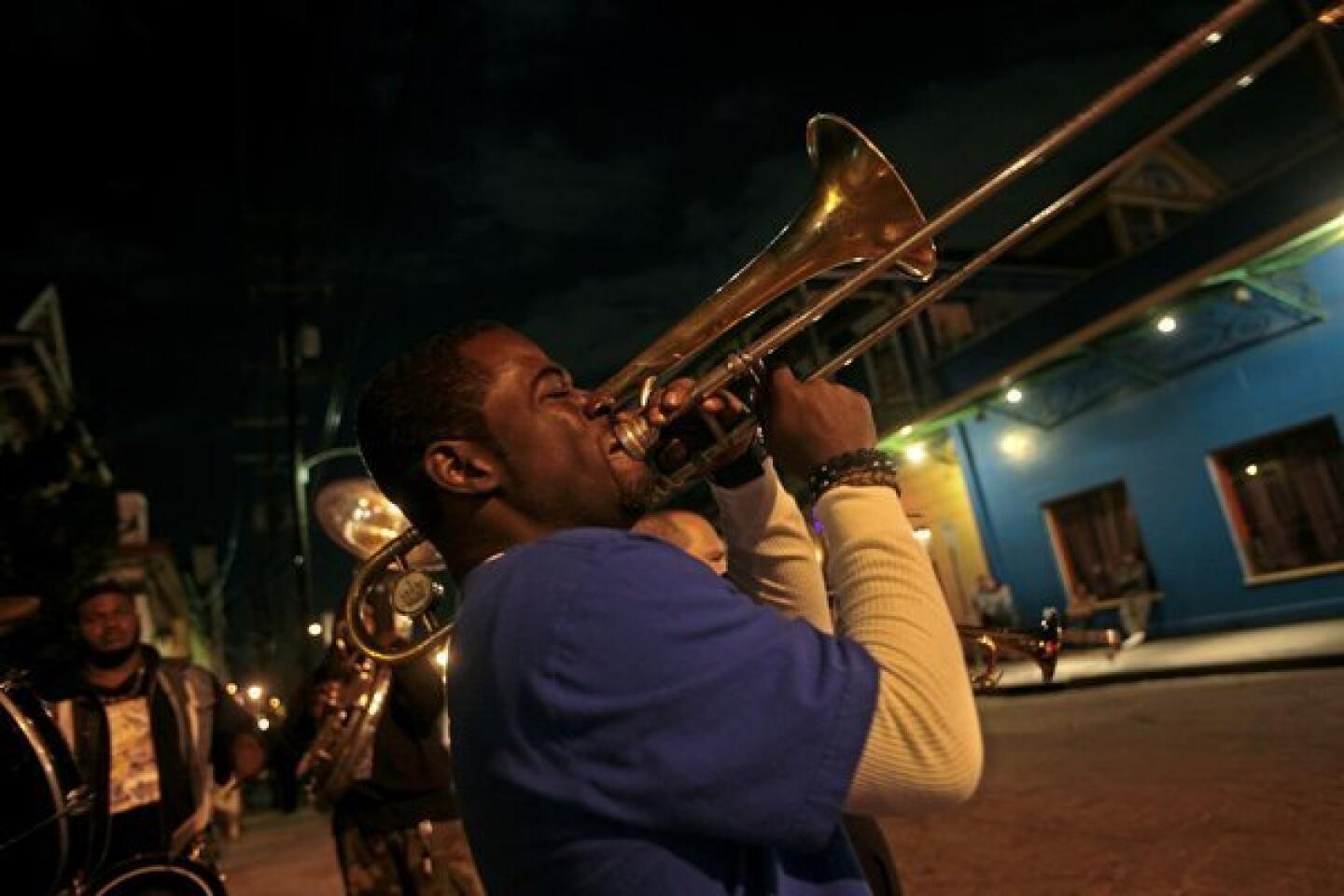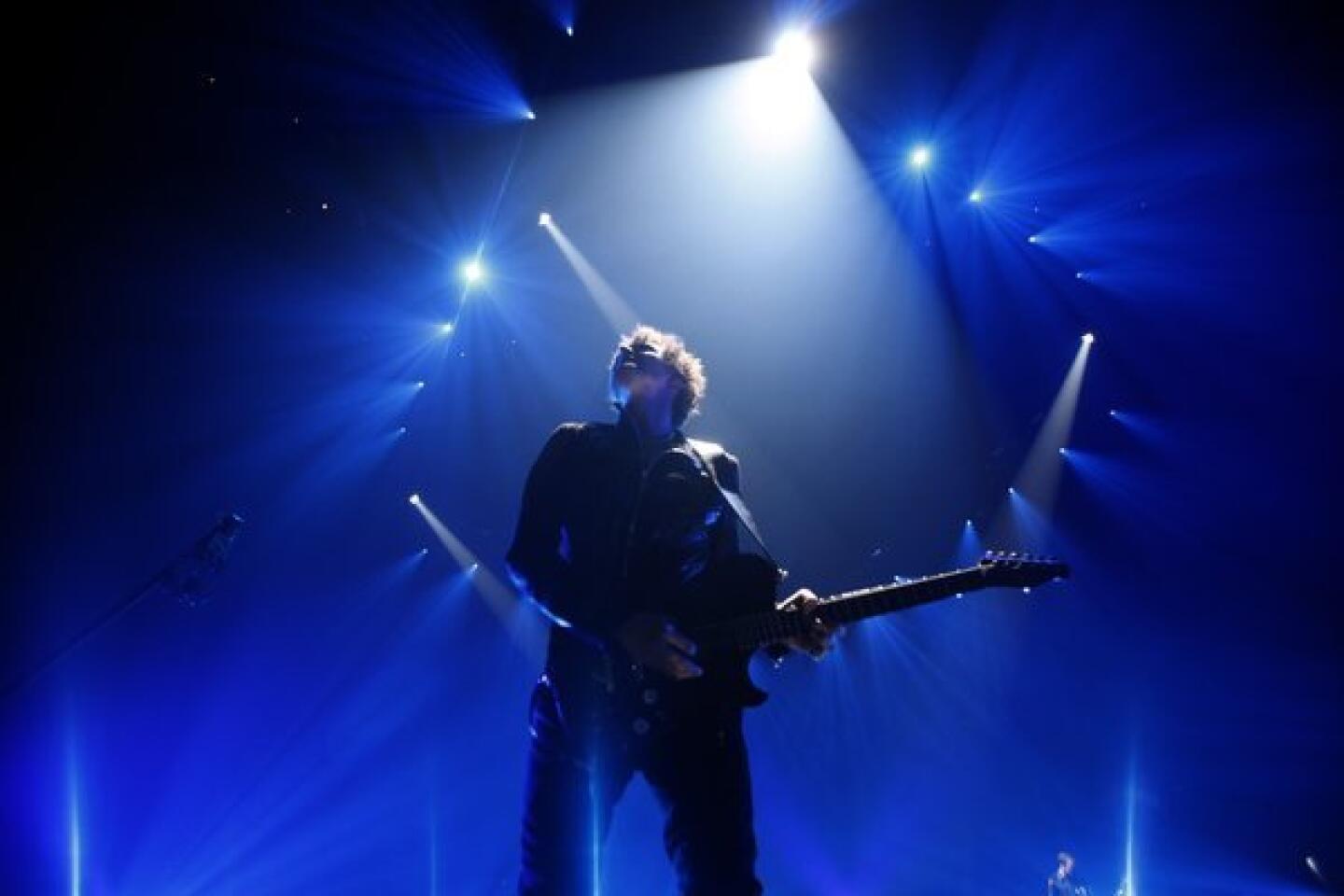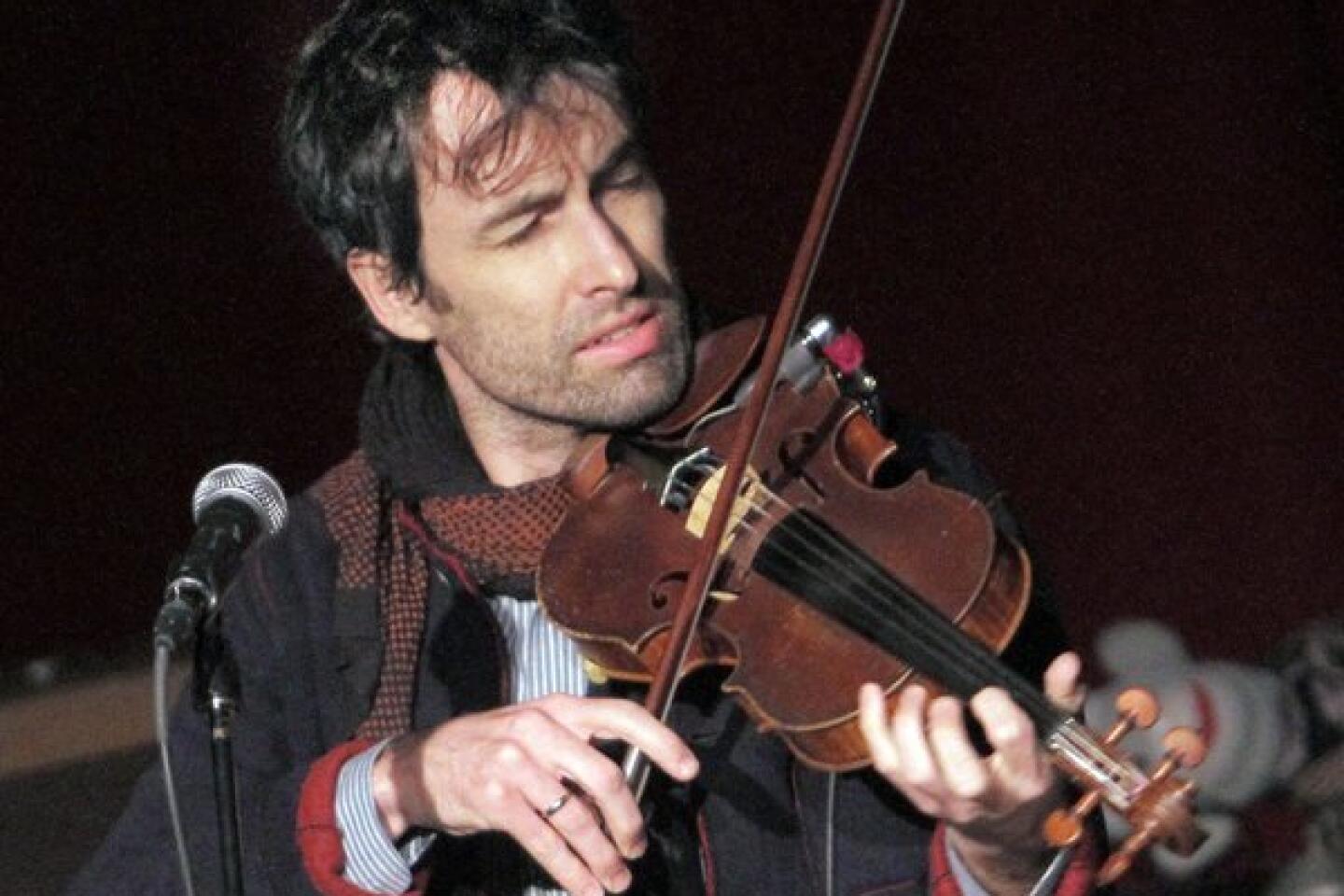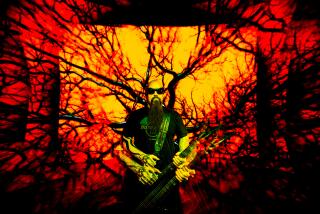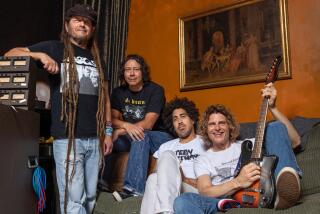Black Sabbath makes its own luck with ‘13’
For decades, the question from fans and journalists was constant and predictable: Would the heavy metal originators of Black Sabbath ever make another album?
Not that they hadn’t tried. In 2001, singer Ozzy Osbourne, guitarist Tony Iommi, bassist Geezer Butler and drummer Bill Ward convened in England to work on new music. And nothing came of it. For years afterward, Osbourne openly fretted in interviews about tampering with the band’s legacy.
This week, Black Sabbath finally delivered “13,” the band’s first album with Osbourne in 35 years. Produced by Rick Rubin, it is a gathering of muscular doom riffs and ominous wailing, but it’s also a sound layered with blues and jazz influences, with several tracks stretching beyond seven minutes. It is aimed at capturing the spirit of the band’s brooding, thundering, bluesy 1970 debut, “Black Sabbath.”
PHOTOS: Iconic rock guitars and their owners
“It’s not Ozzy Osbourne and Black Sabbath, and it took me a while to get my head around that,” says Osbourne, 64, of recording again with the band after years as a platinum-selling solo artist. His last album with Black Sabbath was the 1978 misfire “Never Say Die!,” right before his firing for increasingly erratic drug and alcohol-fueled behavior. He’s reunited with Sabbath periodically for live performances since 1997.
“I’m so used to being the captain of my own ship. Rick Rubin would have me singing some songs for five hours. He would go, ‘Ozzy, that was … awesome. Just give me one more time.’ He pushed me.”
During the sessions, Rubin combed through more than 60 guitar riffs amassed by Iommi, and urged the band away from anything “too heavy metal,” despite being credited with inventing the genre through such menacing early songs as “Paranoid” and “Iron Man.”
“Too heavy metal? We’re Black Sabbath,” Butler recalls thinking. “Then he puts on the first album and says, ‘Does this sound like heavy metal to you?’ Not really, no. He made his point that he wanted us to get back and forget Metallica, forget Iron Maiden and everybody else that came after and get back to what we did back then.”
Sitting together in a West Hollywood hotel room, Butler and Osbourne recount the making of “13” with laughter and the ease that comes from a shared history dating back to working-class adolescence in Birmingham, England, forming a blues band with Iommi and Ward called Earth in 1968. They played a “scarier” version of the blues then, and quickly changed their name to the fittingly ominous Black Sabbath.
PHOTOS: Best albums of 2012 | Randall Roberts
On a recent afternoon ahead of the album’s release, both metal icons are dressed in vampire black, their hair long and dark. Osbourne wears a necklace of small crucifixes, reaching into a bowl of mixed nuts with a hand adorned with a jeweled Union Jack ring.
There were casualties along the way to “13.” Soon after the project was announced at a November 2011 press conference at the Whisky in West Hollywood, Iommi was diagnosed with lymphoma. Then, in May 2012, Ward dropped out of all touring and recording plans over a contract dispute and never returned.
The band had written six new songs during sessions at Osbourne’s home studio when the singer noticed a change in Iommi. “Ozzy says, ‘Tony’s not looking well,’” recalls Butler. “I looked at him and he was gray, thin and his rump had disappeared.”
After Iommi returned home to England for two months of chemotherapy, Butler and Osbourne joined him there to continue writing. Sabbath then entered the idyllic Shangri La studio in Malibu and spent three months recording 16 songs. They worked five hours a day, always finishing by 6 p.m.
“It was straight back to the … wheel,” Osbourne says of Iommi, now back in England continuing cancer treatment before Sabbath’s 20-city North American summer tour, which includes a stop at Verizon Wireless Amphitheatre in Irvine on Aug. 28.
“If he could do that, whatever problems we had are … minute,” adds Osbourne, voice rising. “If I had done that, I’d be in a morphine ward writing my last will and testament.”
To fill the drum seat on “13,” the band chose a musician with his own stature and noisy history: Brad Wilk, of Rage Against the Machine and Audioslave. (Drumming with Sabbath on the road is Tommy Clufetos.)
“At first, we weren’t sure about it,” Butler says of Wilk, a generation younger at 44. “Then after about a week everything suddenly fell into place. It’s one of those bits of magic that happens, and everything went great from then on. He brought what Bill would have brought — that kind of swing to his playing, rather than straight-ahead metal.”
Online reaction to Ward’s exit was predictably angry, as Ward complained in written statements of “a totally unsatisfactory contract” out of line with “mindful principles, respectability, and acknowledgment of my history within the band.”
It wasn’t Ward’s first Sabbath-related contract dispute since the band’s initial 1997 reunion, and he hadn’t participated in every tour. In 2006, he also dropped out early from Heaven & Hell, a post-Osbourne version of Sabbath with singer Ronnie James Dio, Butler and Iommi. But after decades of false starts and breakups, and band members now in their 60s, the stakes were never higher.
“If we had started this and it fizzled out again,” Osbourne says, “people would have gone, ‘Forget it, it’s a … pipe dream, it’s never going to happen, so get on with your lives.’ This is our last stand.”
“I think Bill suffers from a bit of paranoia when it comes to contracts,” Osbourne adds. “We’re all very sad that it didn’t work out. It would have been great.”
In May, the first song revealed from “13” was “End of the Beginning,” with a Sabbath concert appearance on the network crime drama “CSI,” unleashing Osbourne’s madman wail for the TV viewers at home, as actor Ted Danson watched safely from the back of the crowd.
Across the album, primary lyricist Butler crafted grim stories of dangerous shut-ins on “Loner” and pedophile priests on “Dear Father.” In the tradition of Sabbath’s signature antiwar song “War Pigs” is “Age of Reason,” which rails against “politics, religion, love of money …”
He wrote the last one at Shangri La while overlooking the ocean, Butler recalls with a laugh. “It was the best day you could imagine. It was about 90 degrees. God knows why I wrote that. It was the exact opposite of what I was thinking.”
Further away from metal is “Zeitgeist,” unfolding slowly with spectral acoustic guitar and a restrained Iommi solo more jazz than rock.
“What was it called?” asks Osbourne, still working on memorizing song titles.
“ ‘Zeitgeist,’” Butler replies with a smile.
“What’s that mean?”
“The spirit of the time.”
“Oh … hell,” Osbourne says. “You make a Black Sabbath album and you get an education.”
Days later, Butler and Osbourne host a preview event at a theater on Sunset Boulevard. Iommi remains in England for medical treatment while his bandmates take adoring questions from the audience. A small crowd hovers around Sharon Osbourne, Ozzy’s wife and manager (and his reality TV costar for four seasons on “The Osbournes”). She gets a long hug from guitarist Zakk Wylde, blond Viking hair past his shoulders.
“There’s a lot of love for this band,” she says. “People realize they are all such survivors, especially with what Tony’s been going through.”
Sharon survived her own cancer diagnosis a decade earlier, and shared her experiences with Iommi. She notes that the musical challenges are also very real to Black Sabbath, risking damage to its legacy if the new album fell short.
“They all put an awful lot on the line, not only in time but their credibility and reputation of the albums they had done so long ago,” she says of “13,” a project she managed. “You don’t want to put something out there that is not up to par.”
More to Read
The biggest entertainment stories
Get our big stories about Hollywood, film, television, music, arts, culture and more right in your inbox as soon as they publish.
You may occasionally receive promotional content from the Los Angeles Times.
